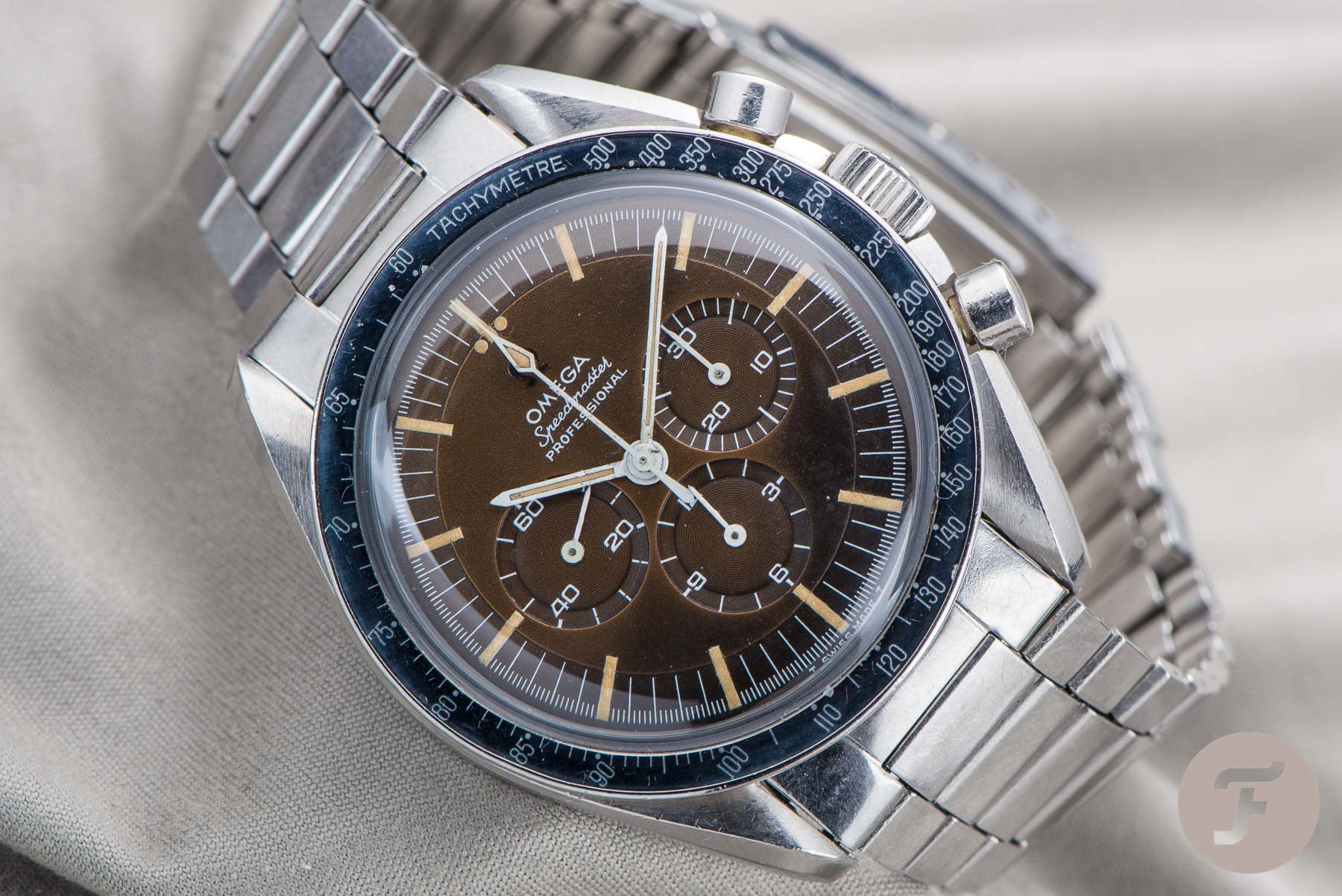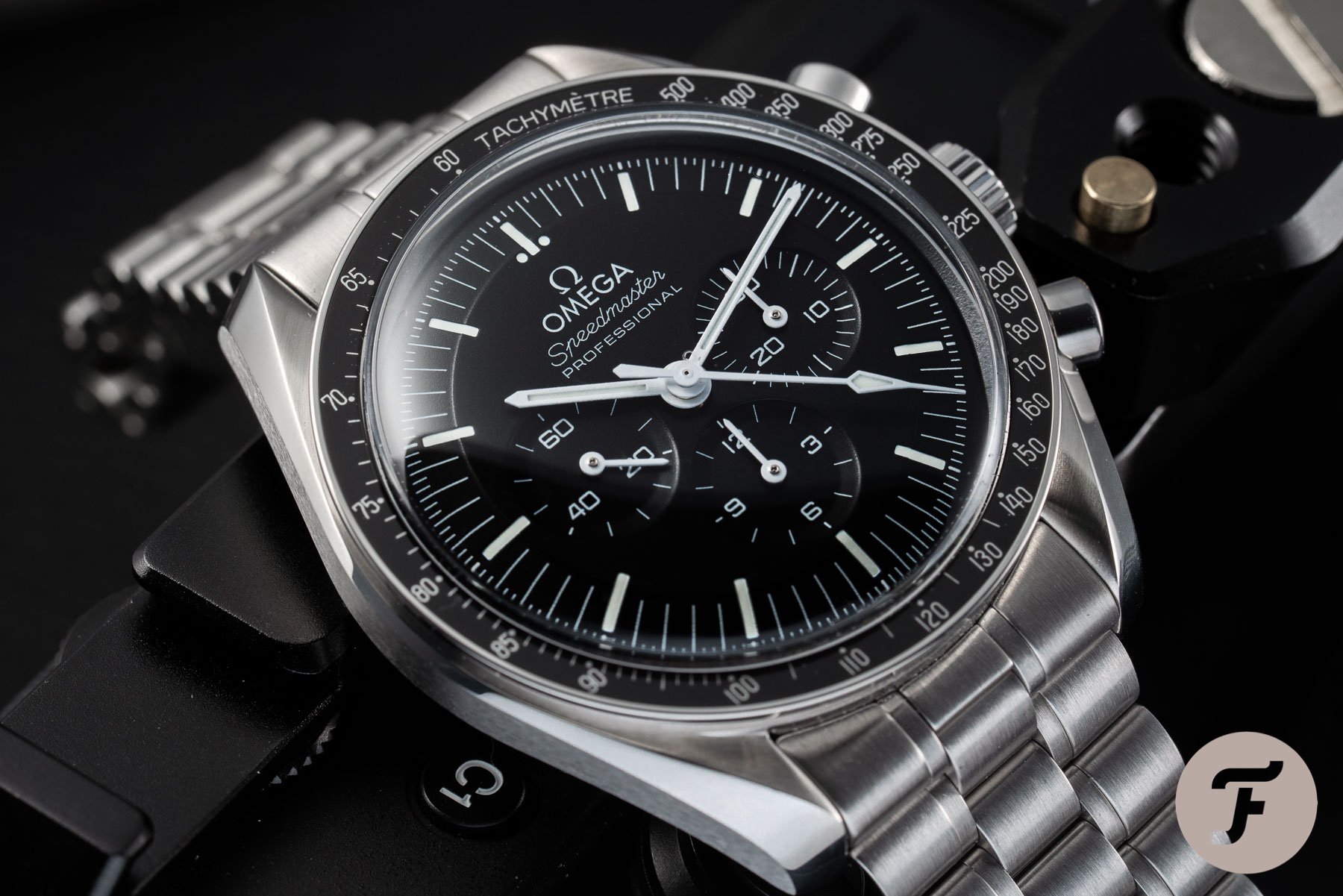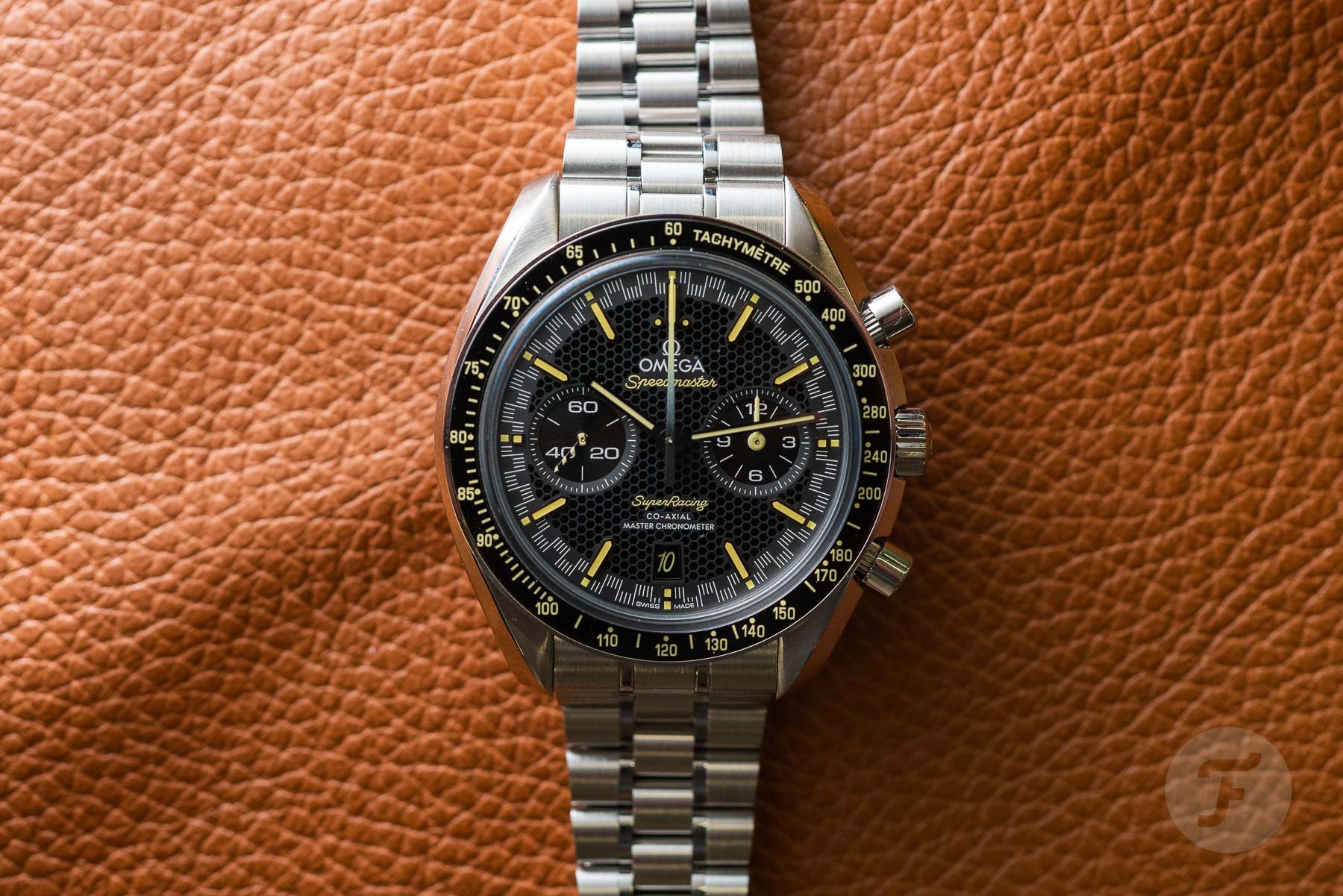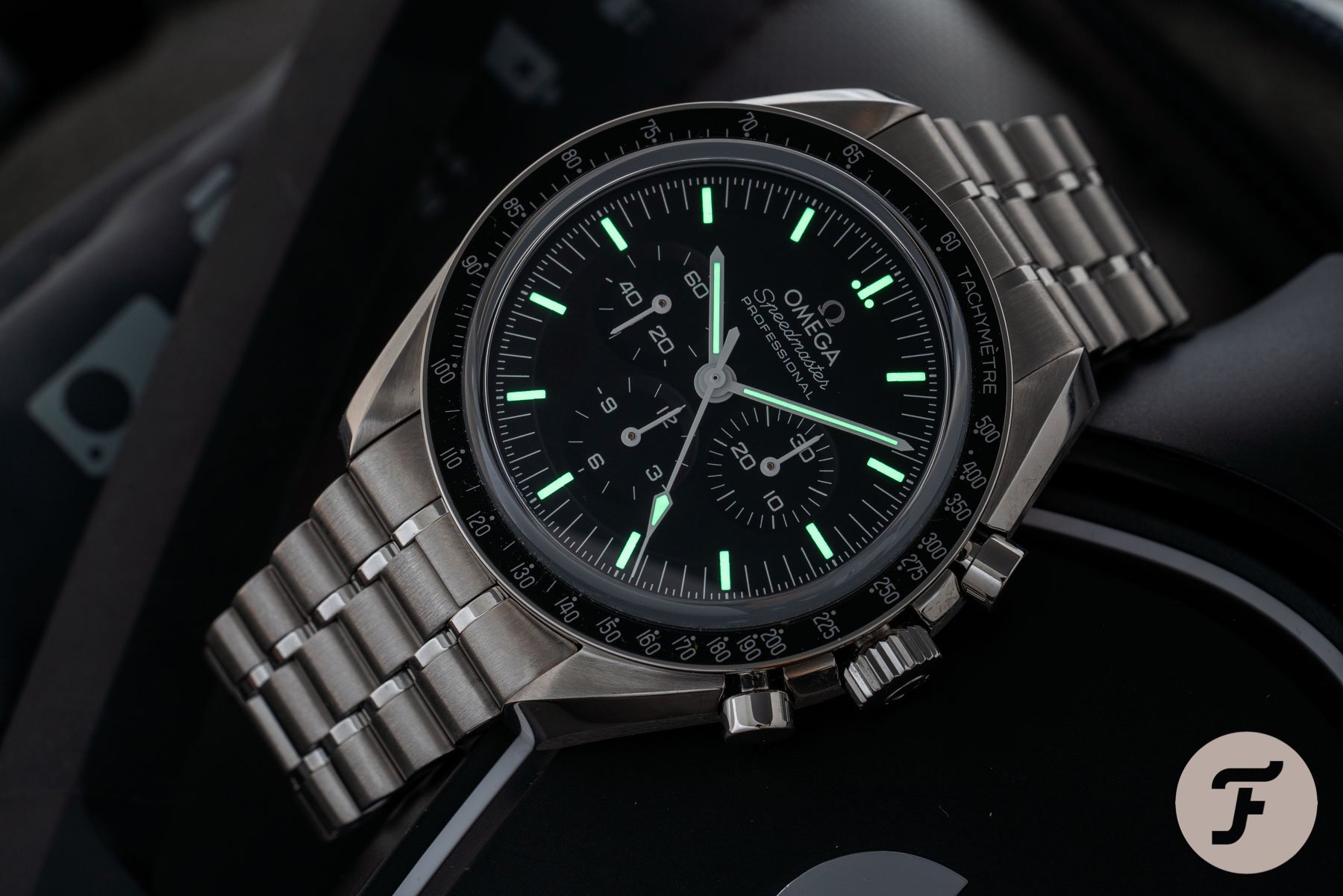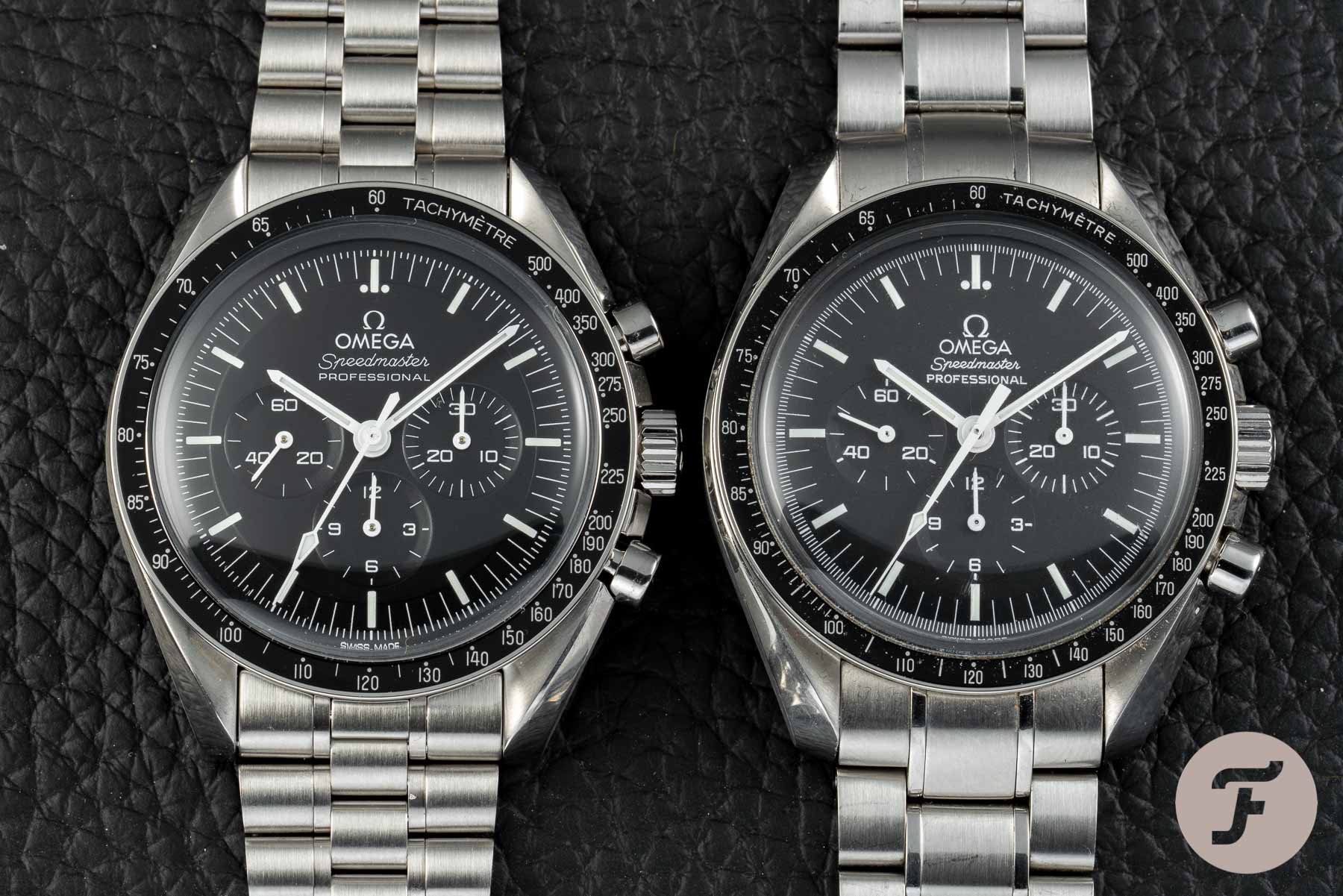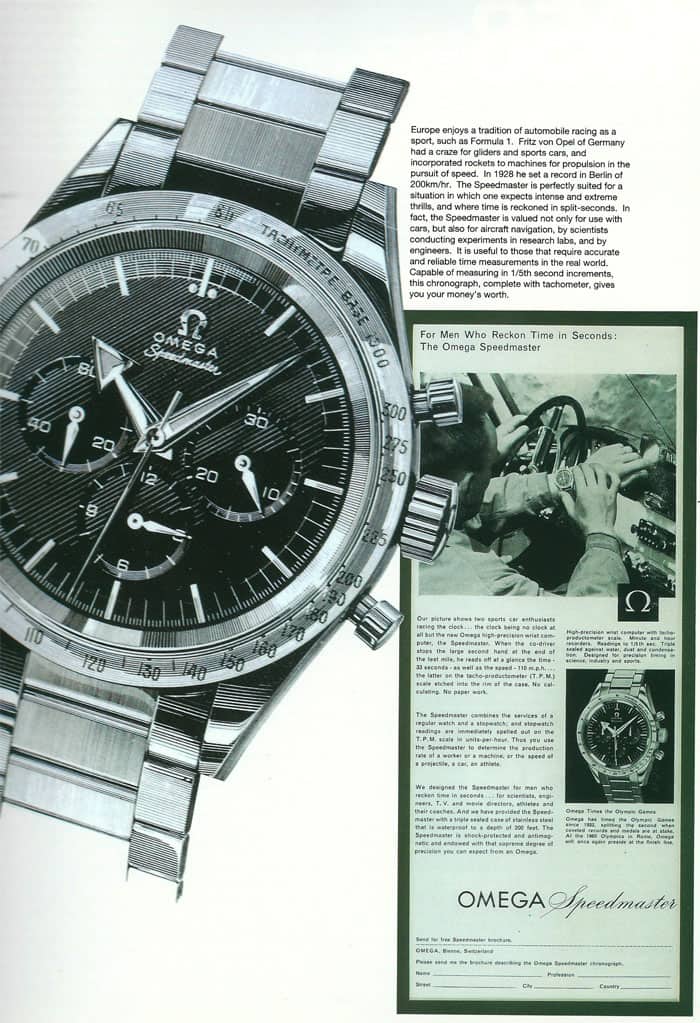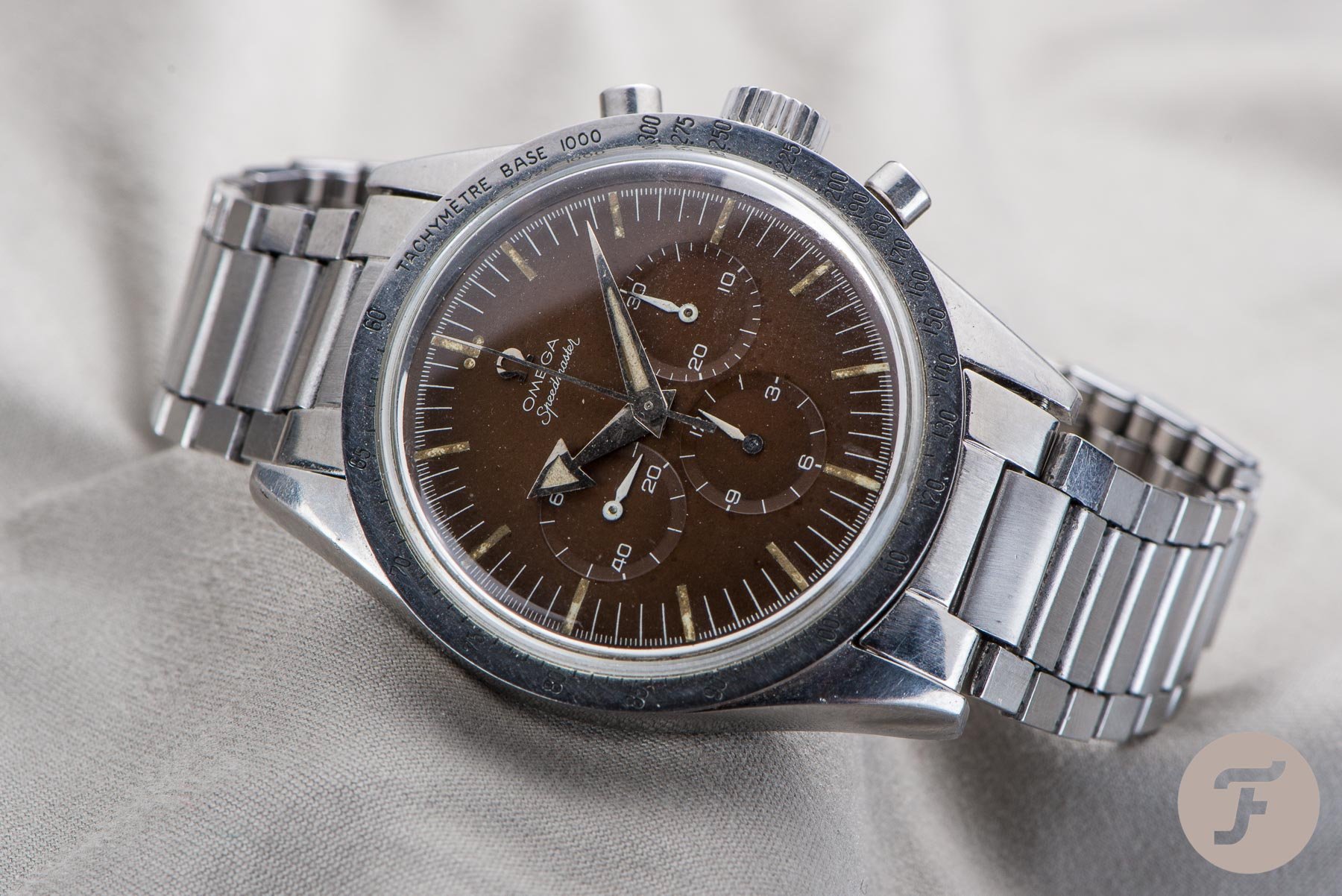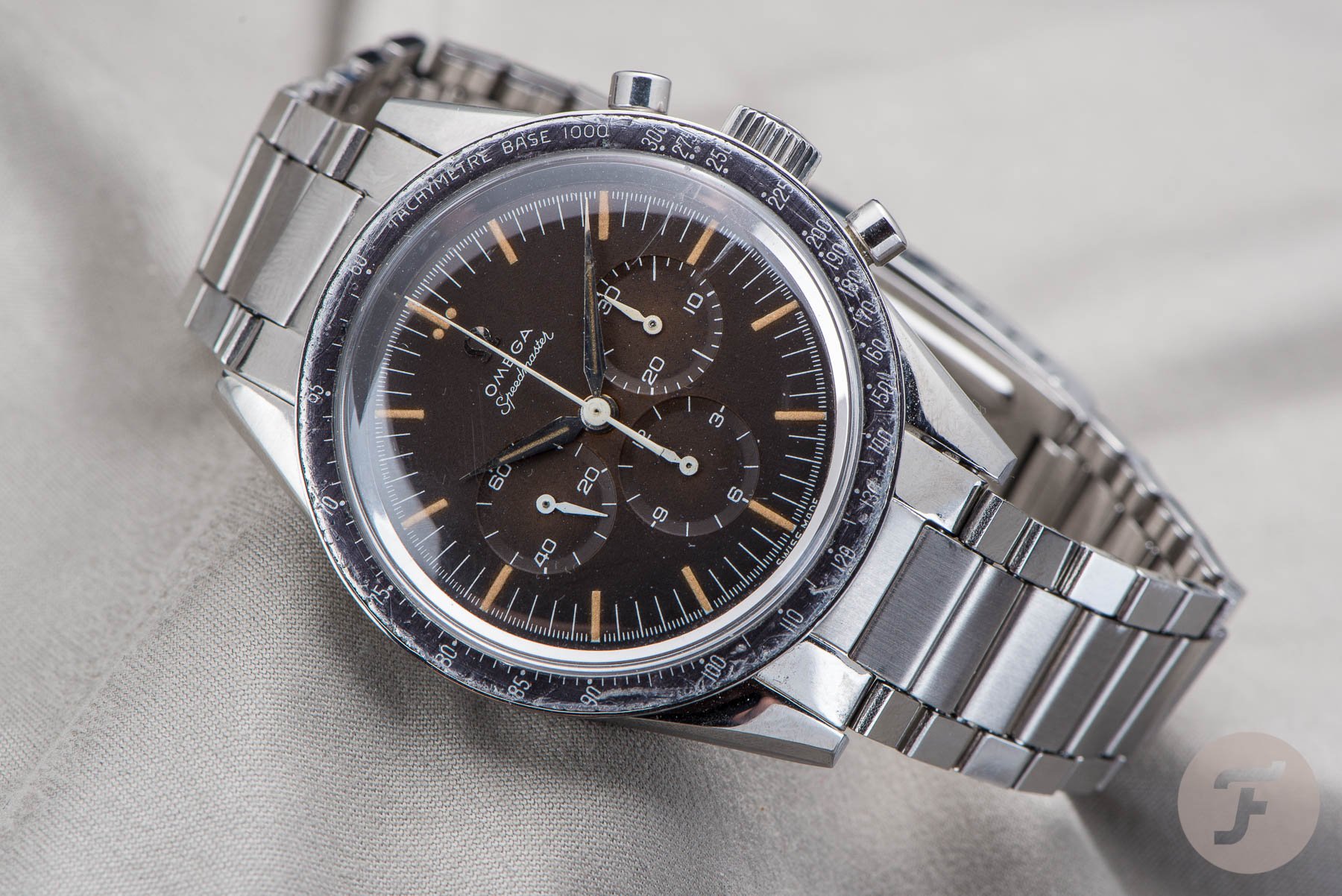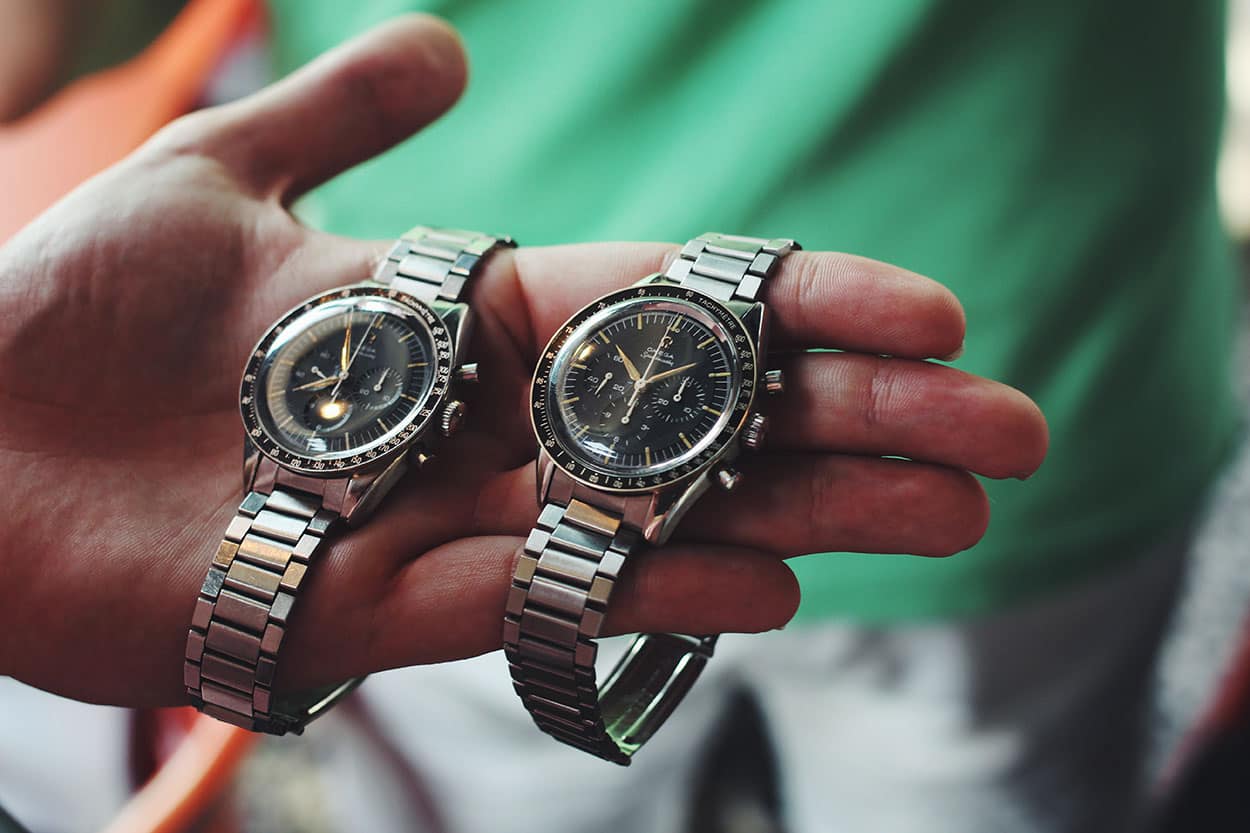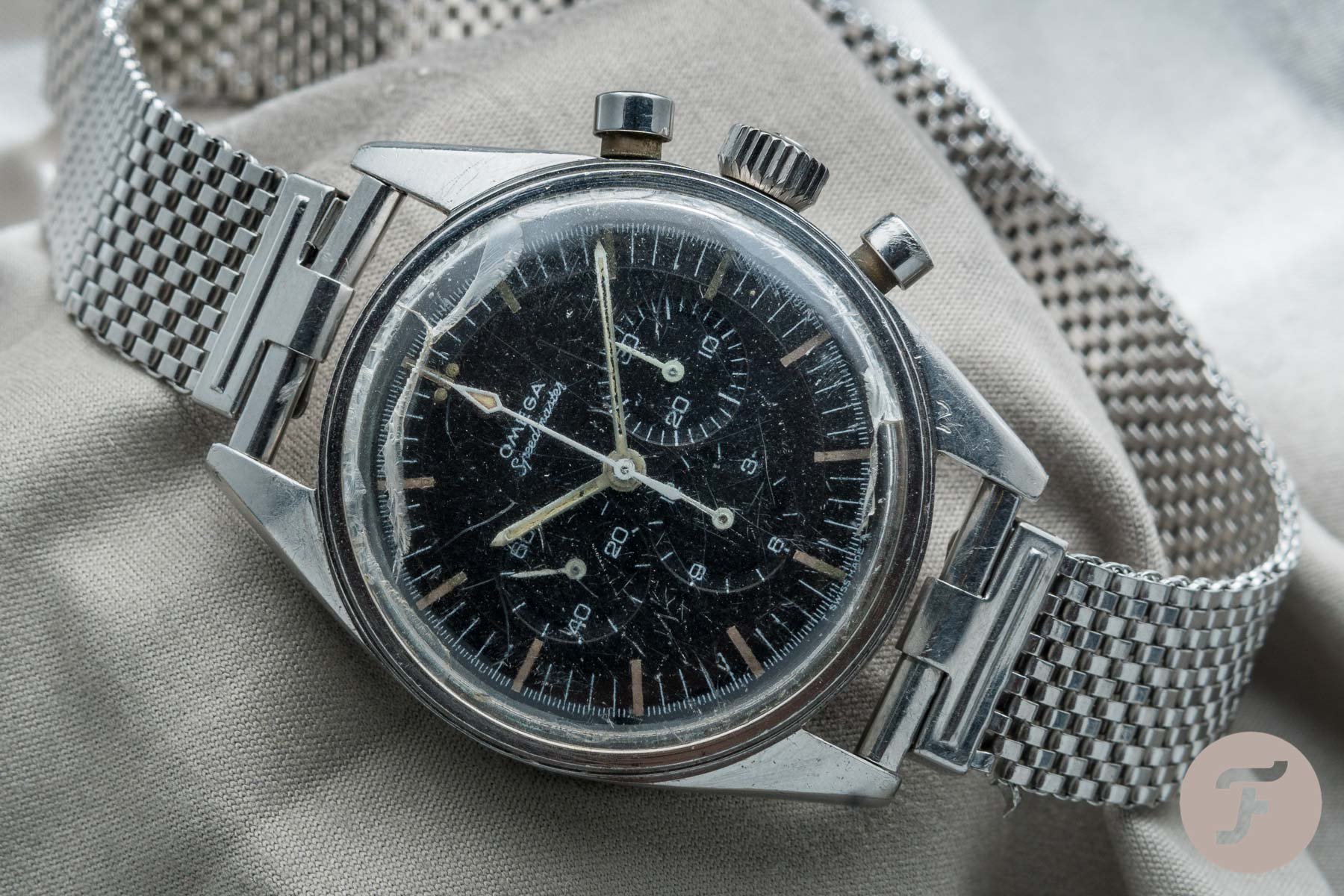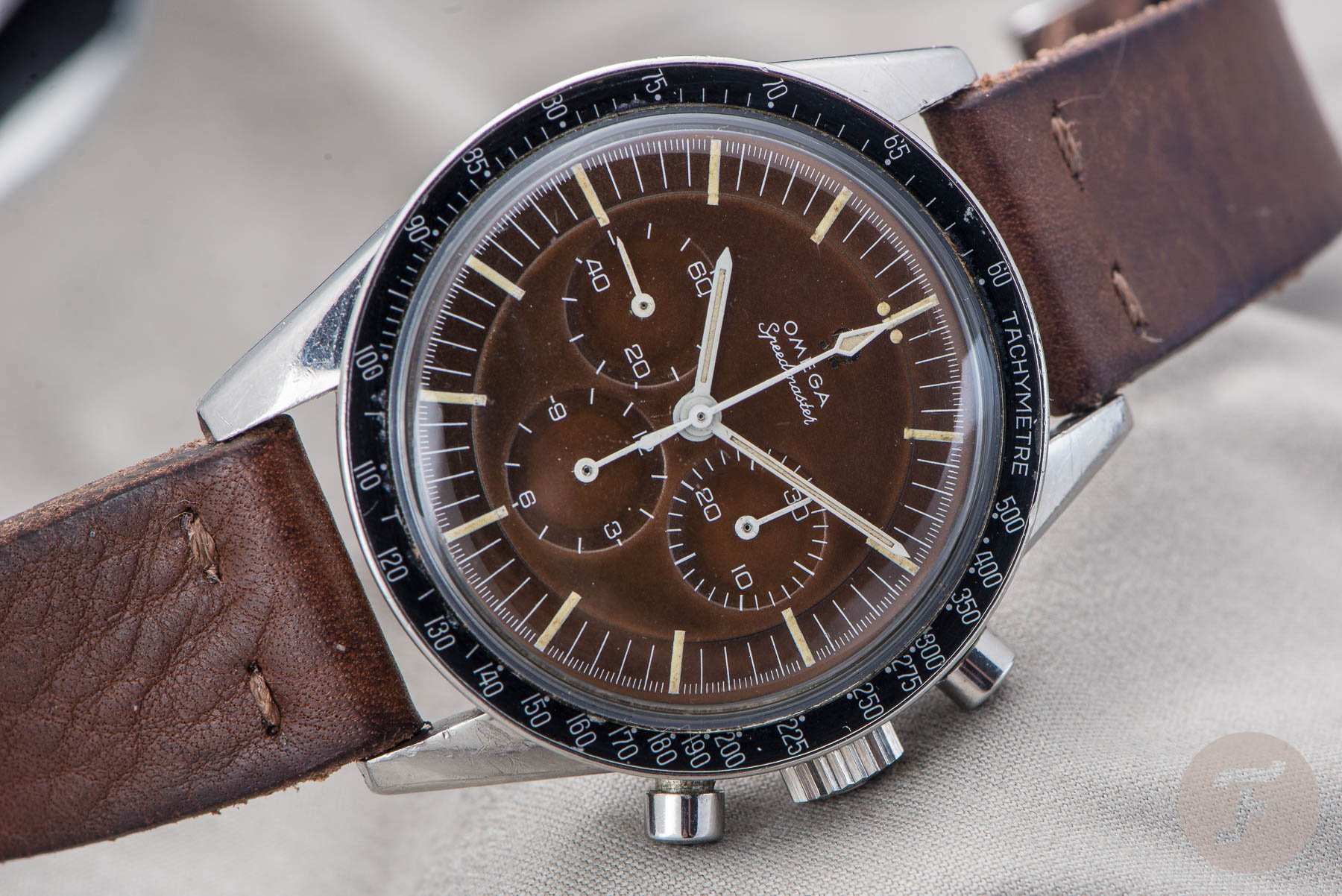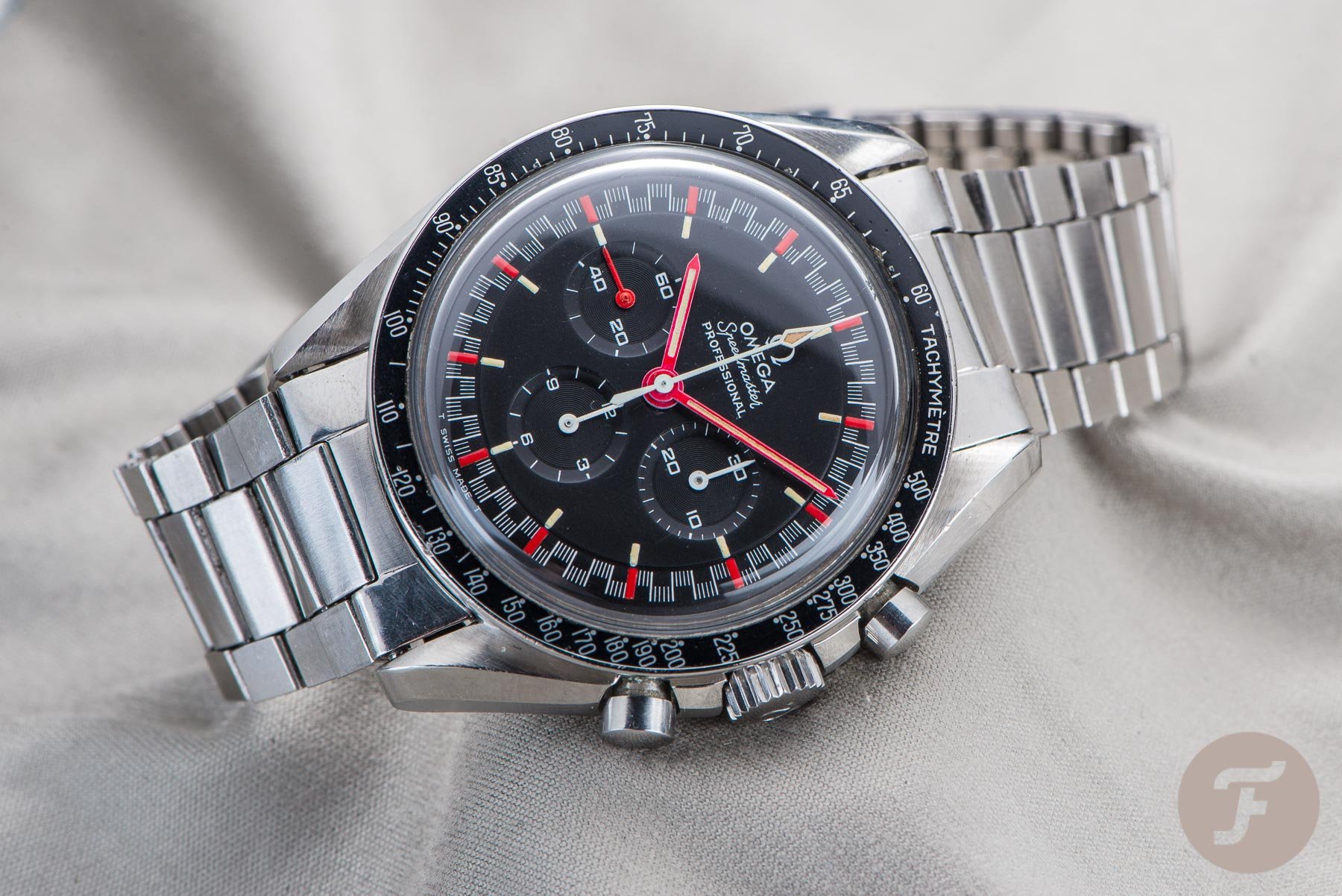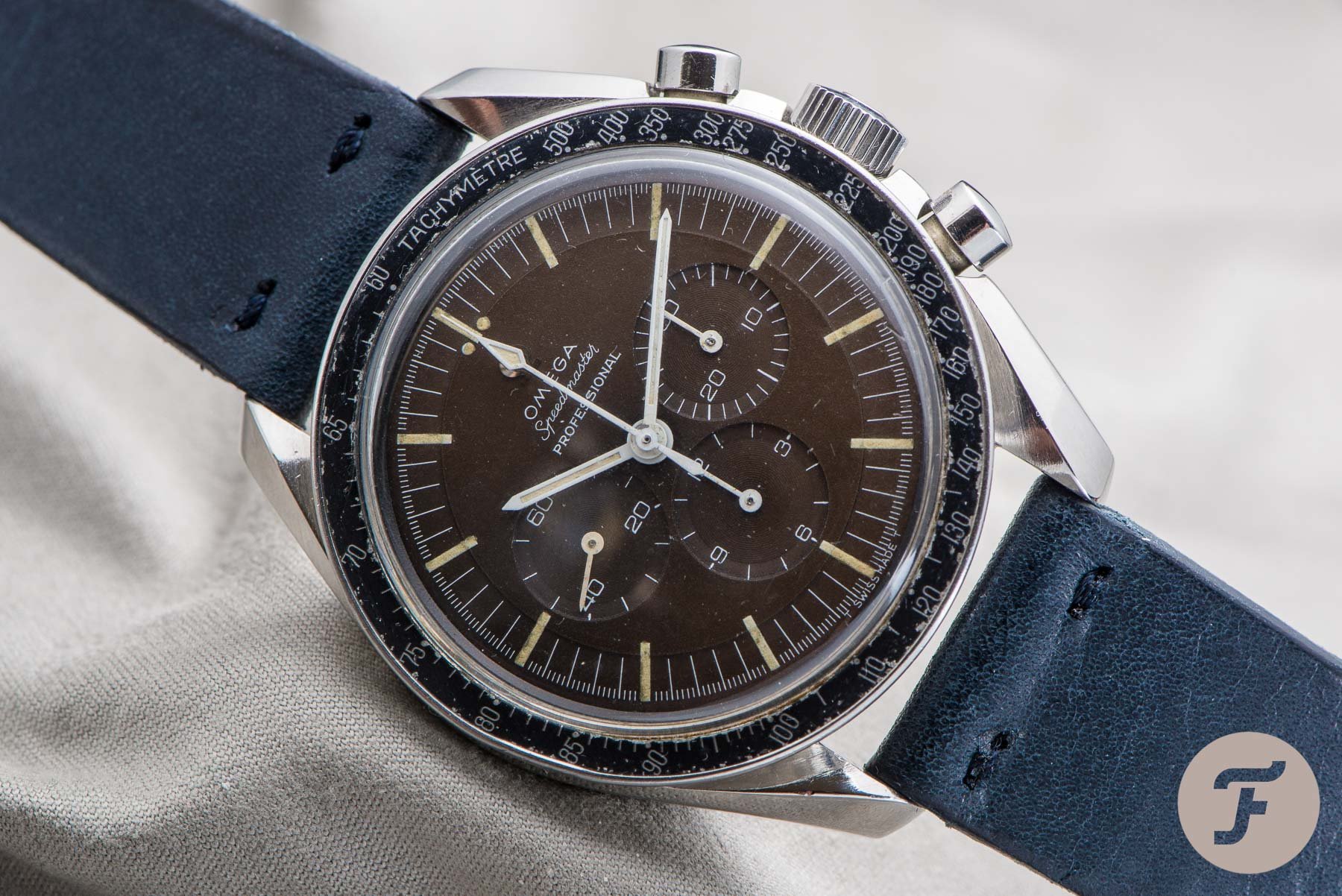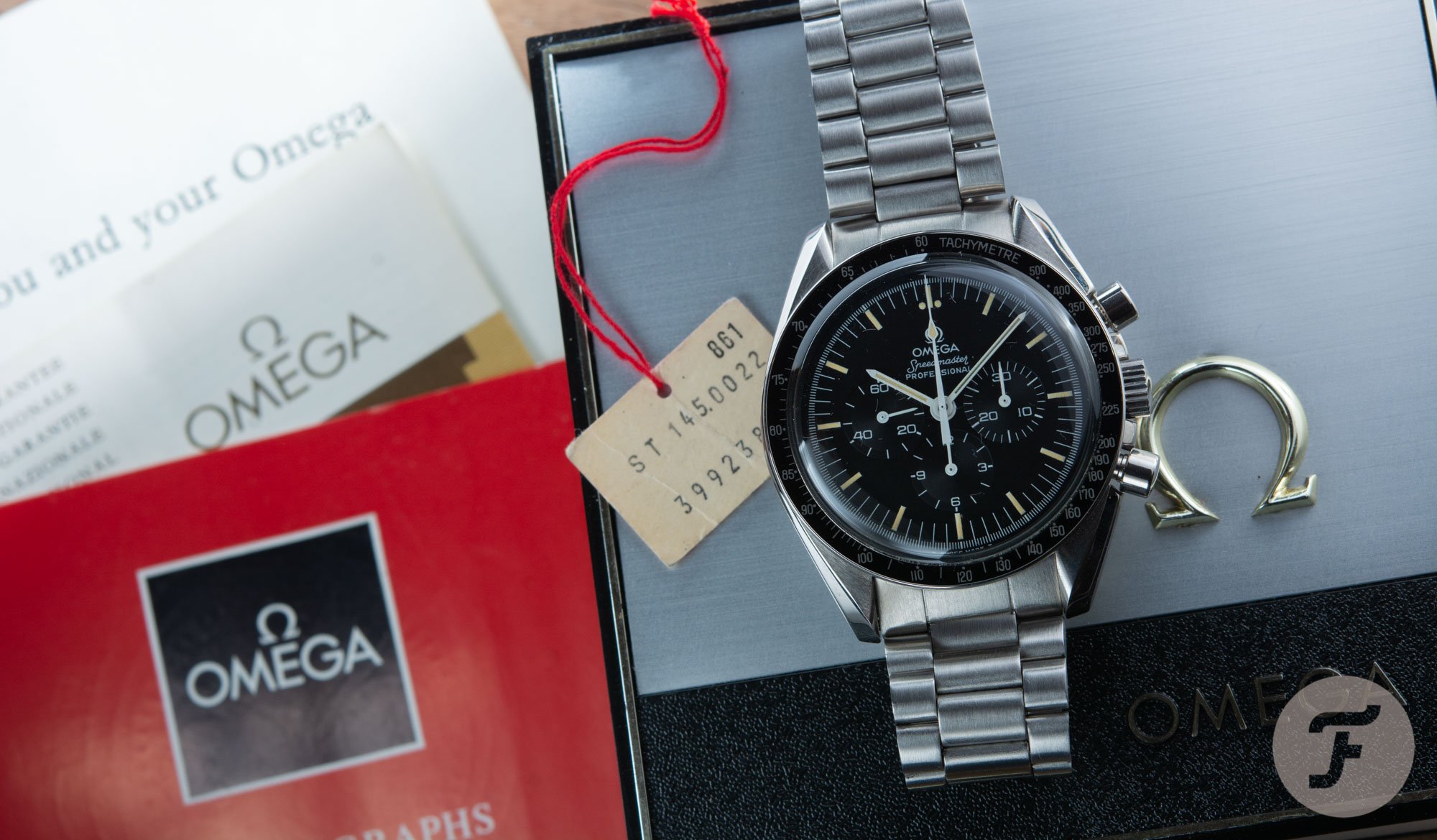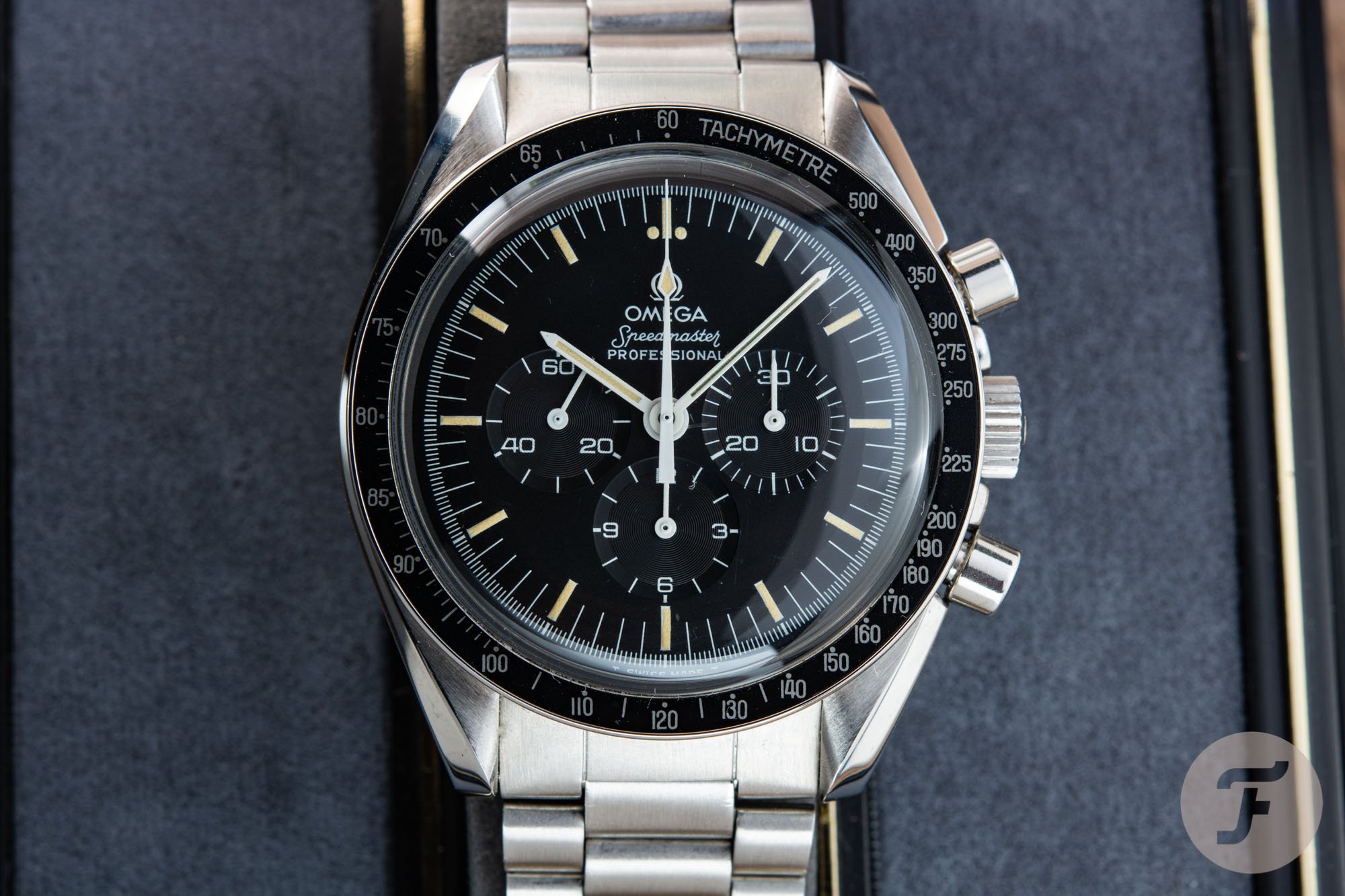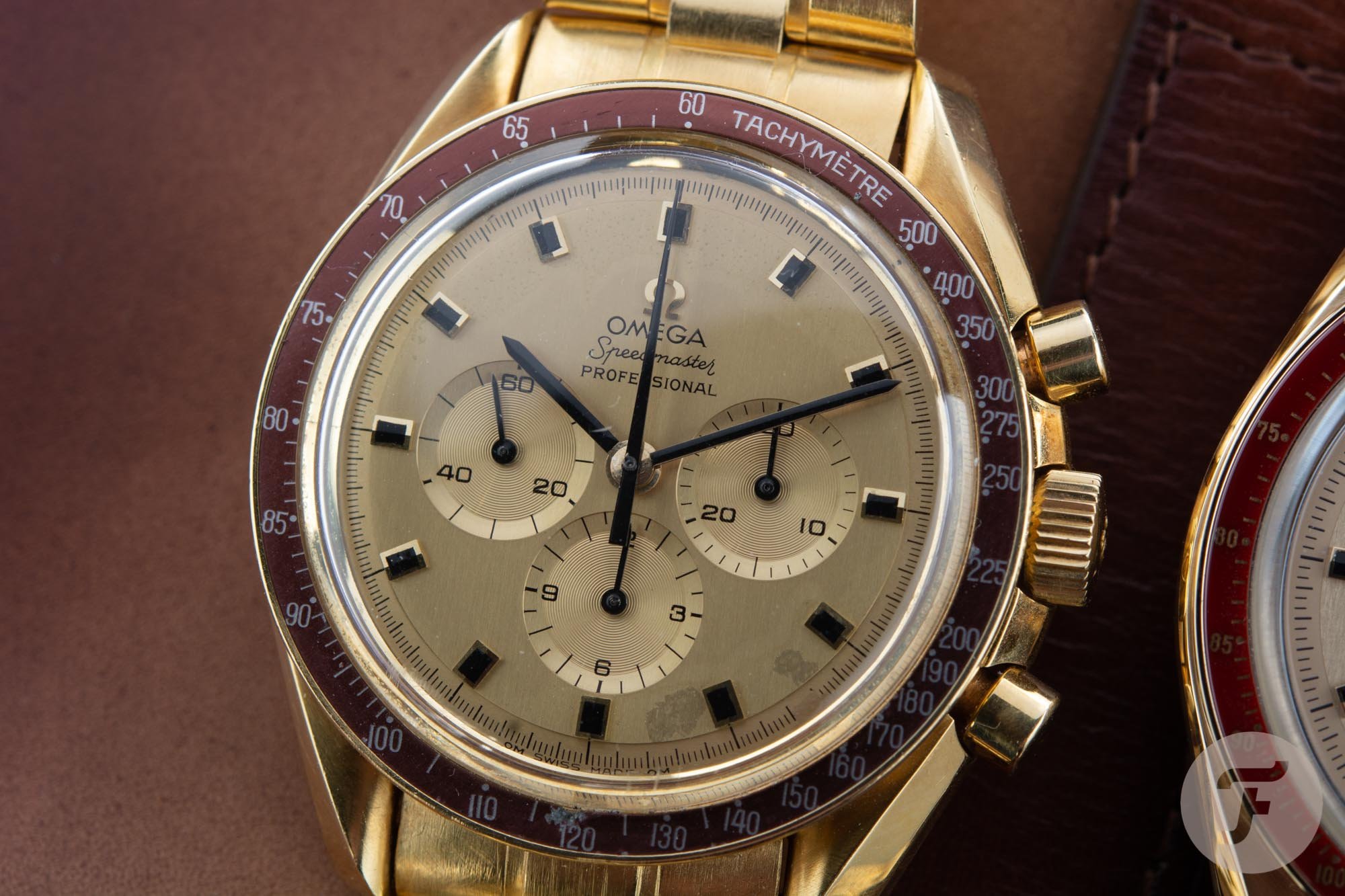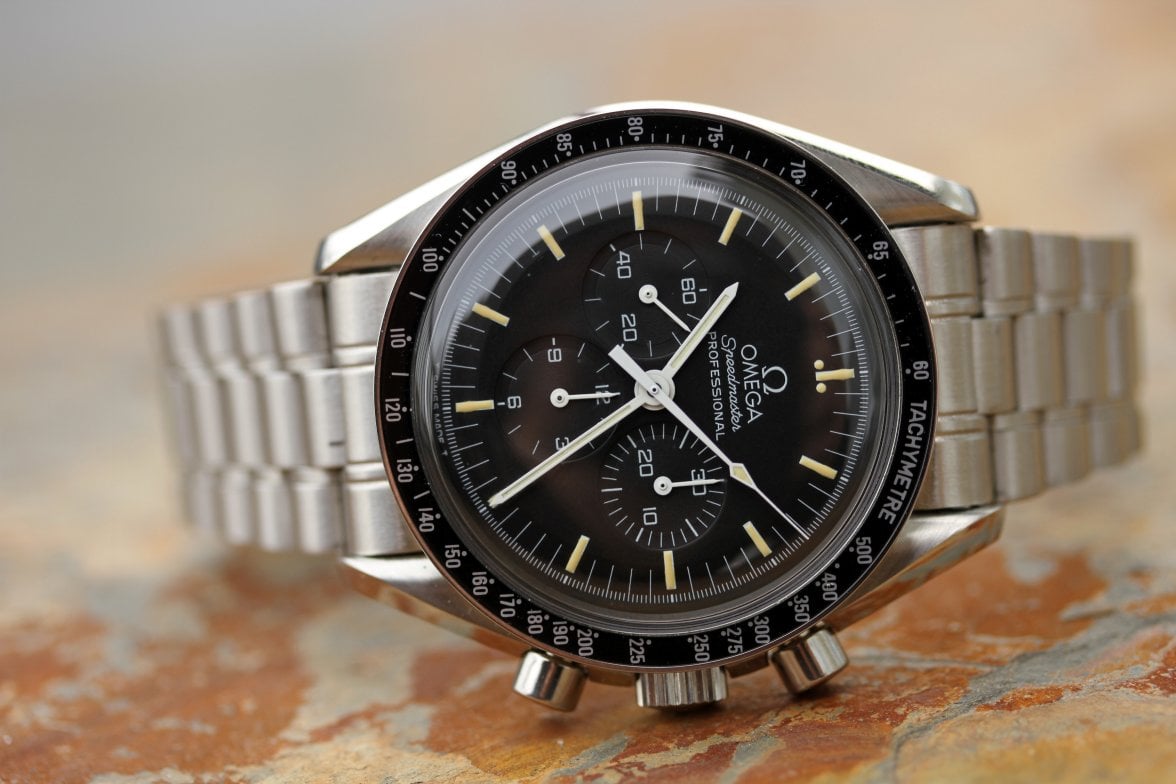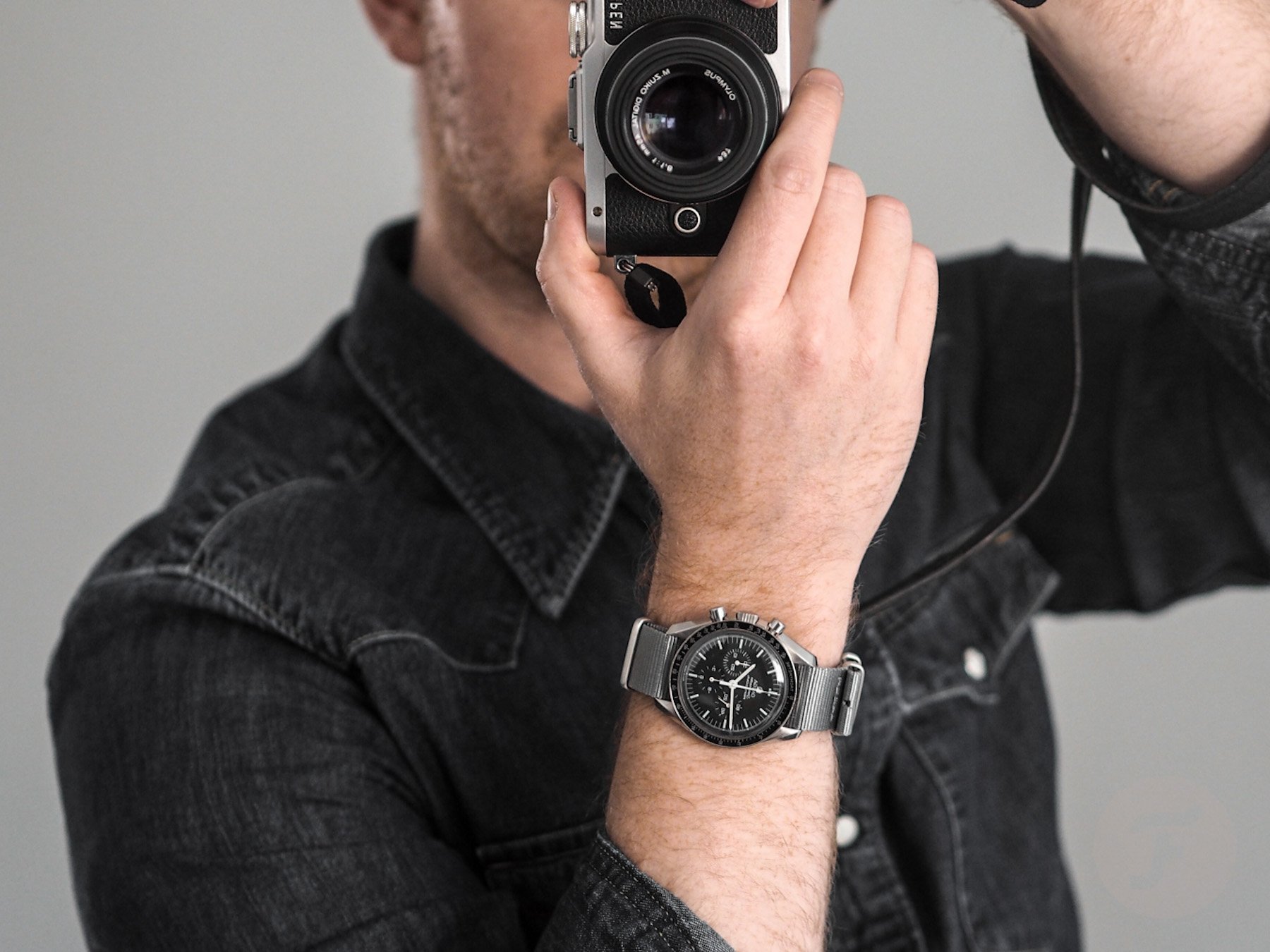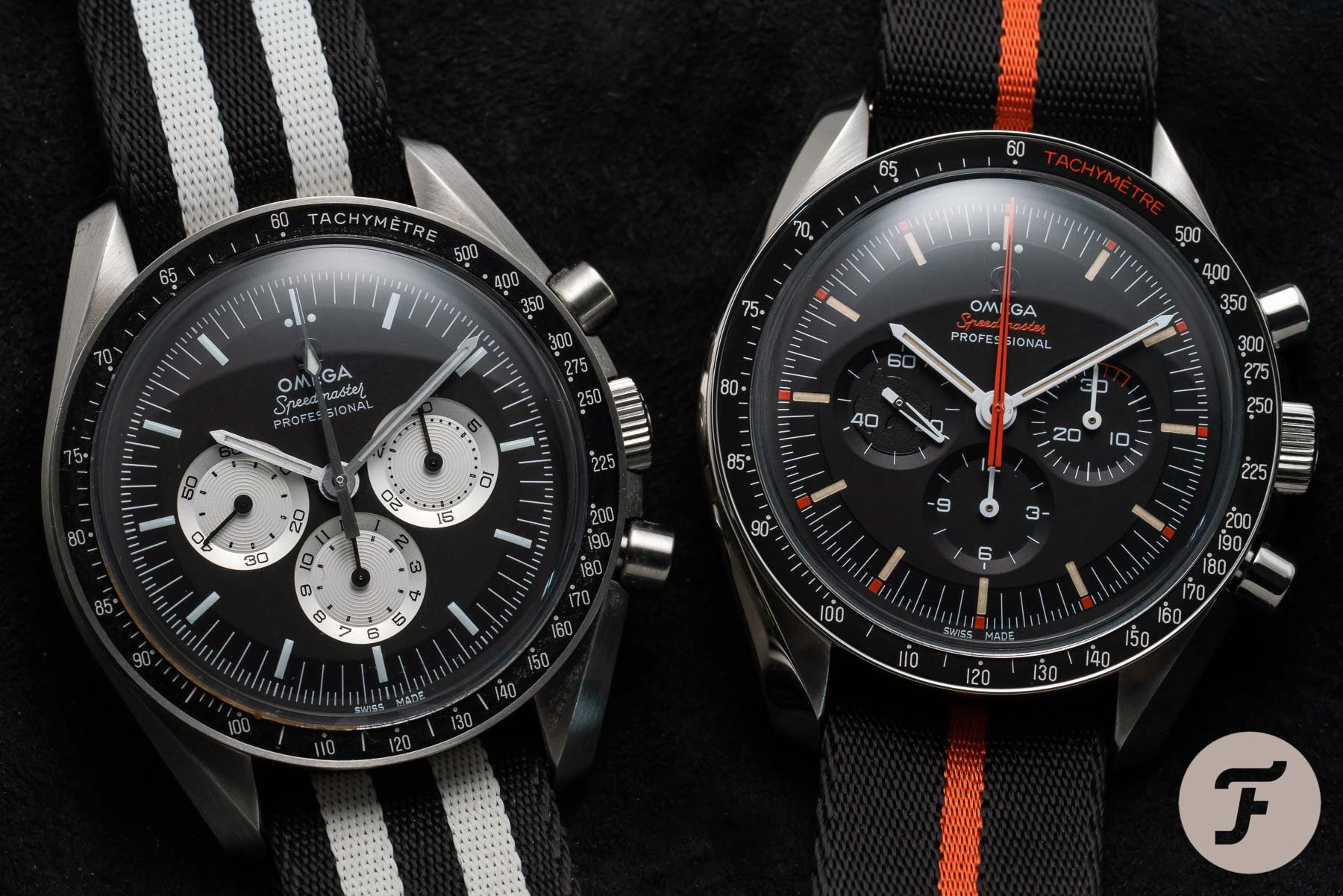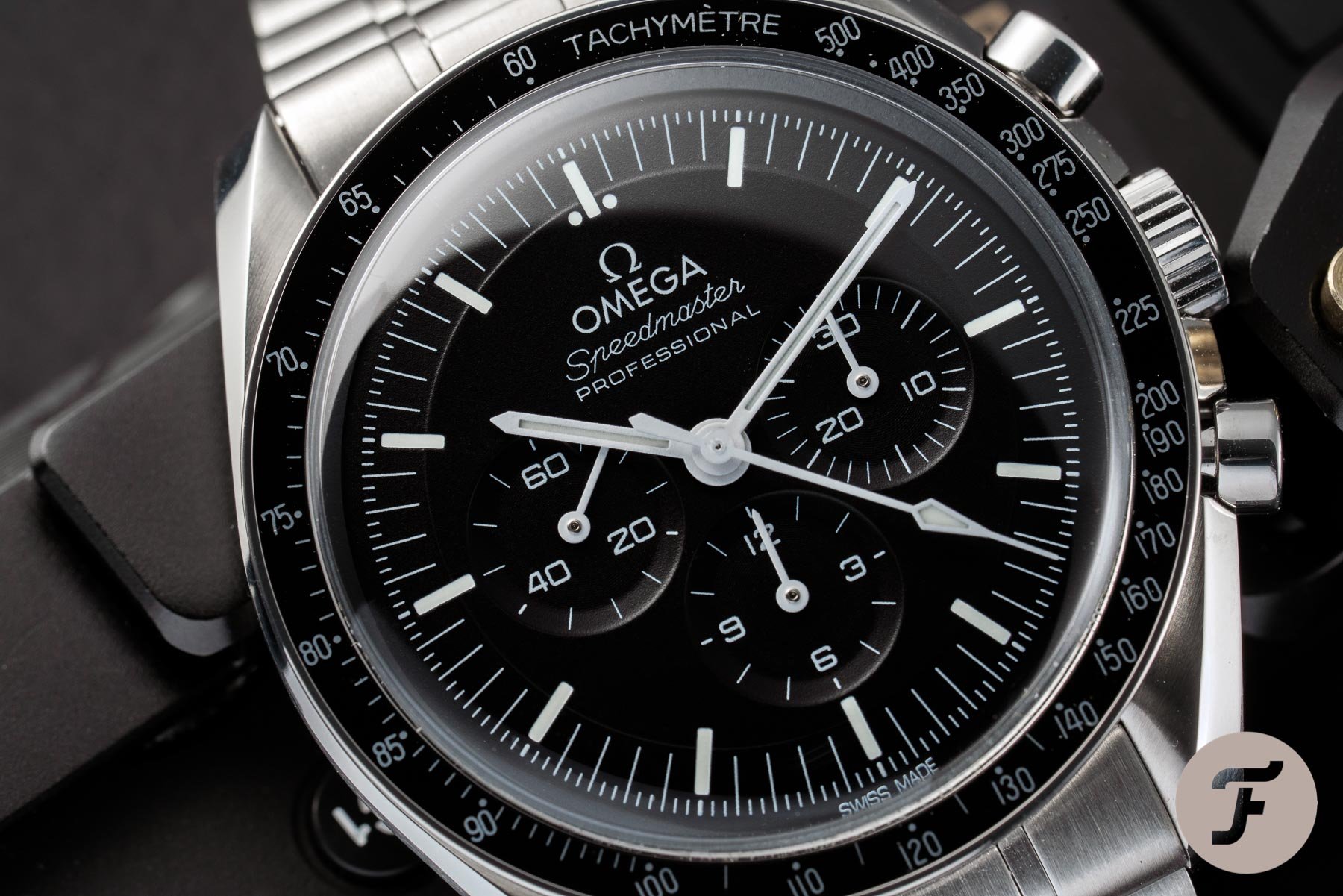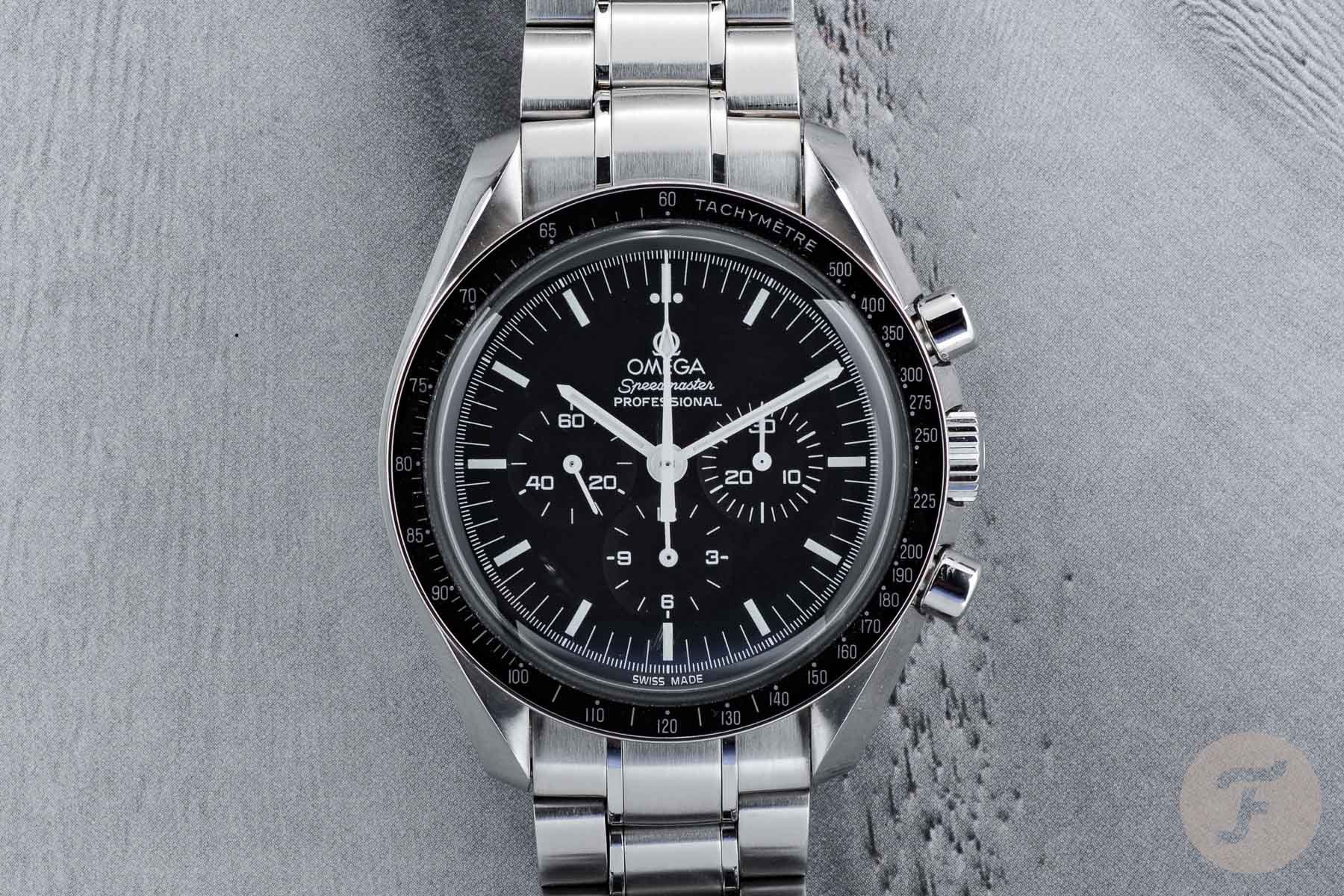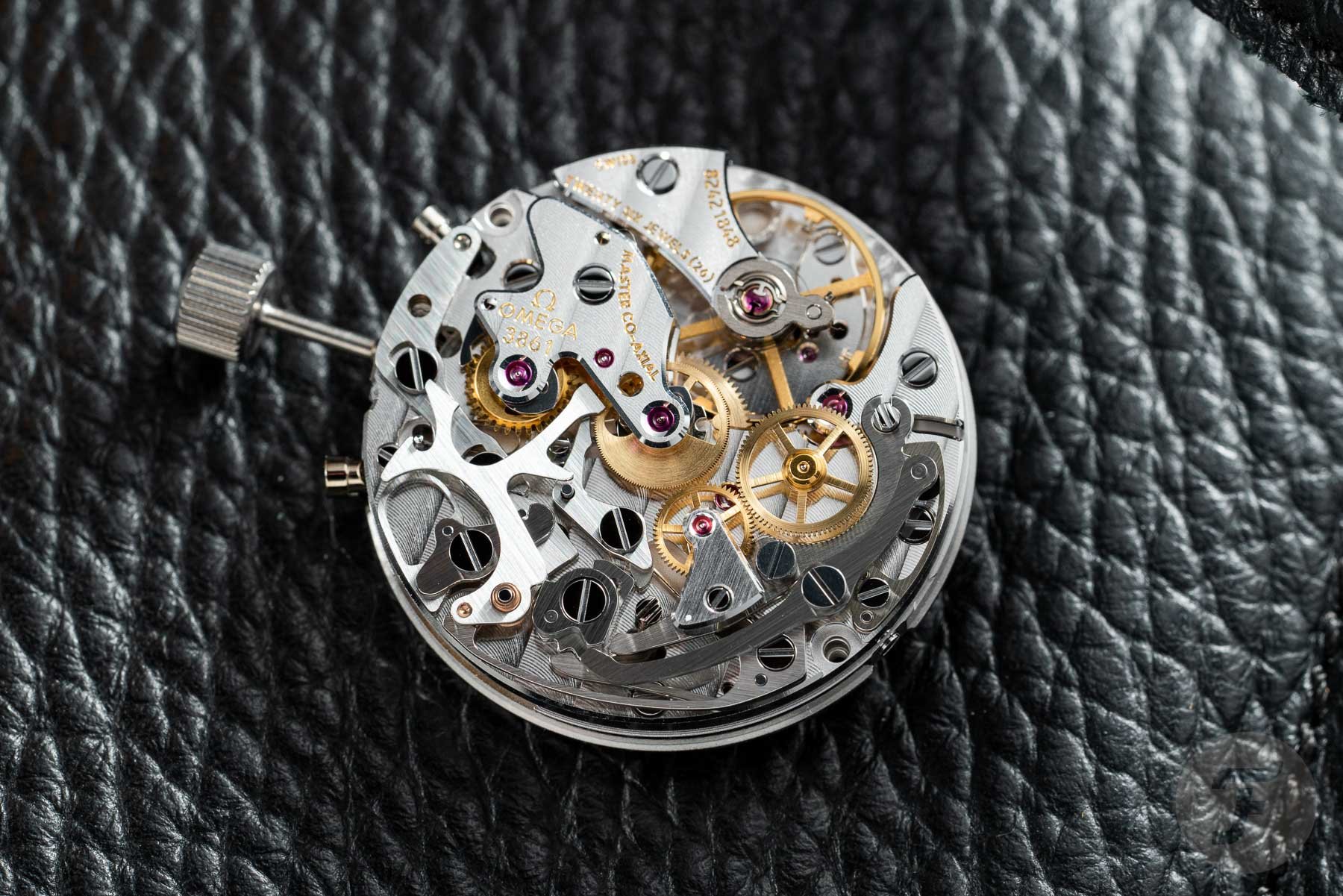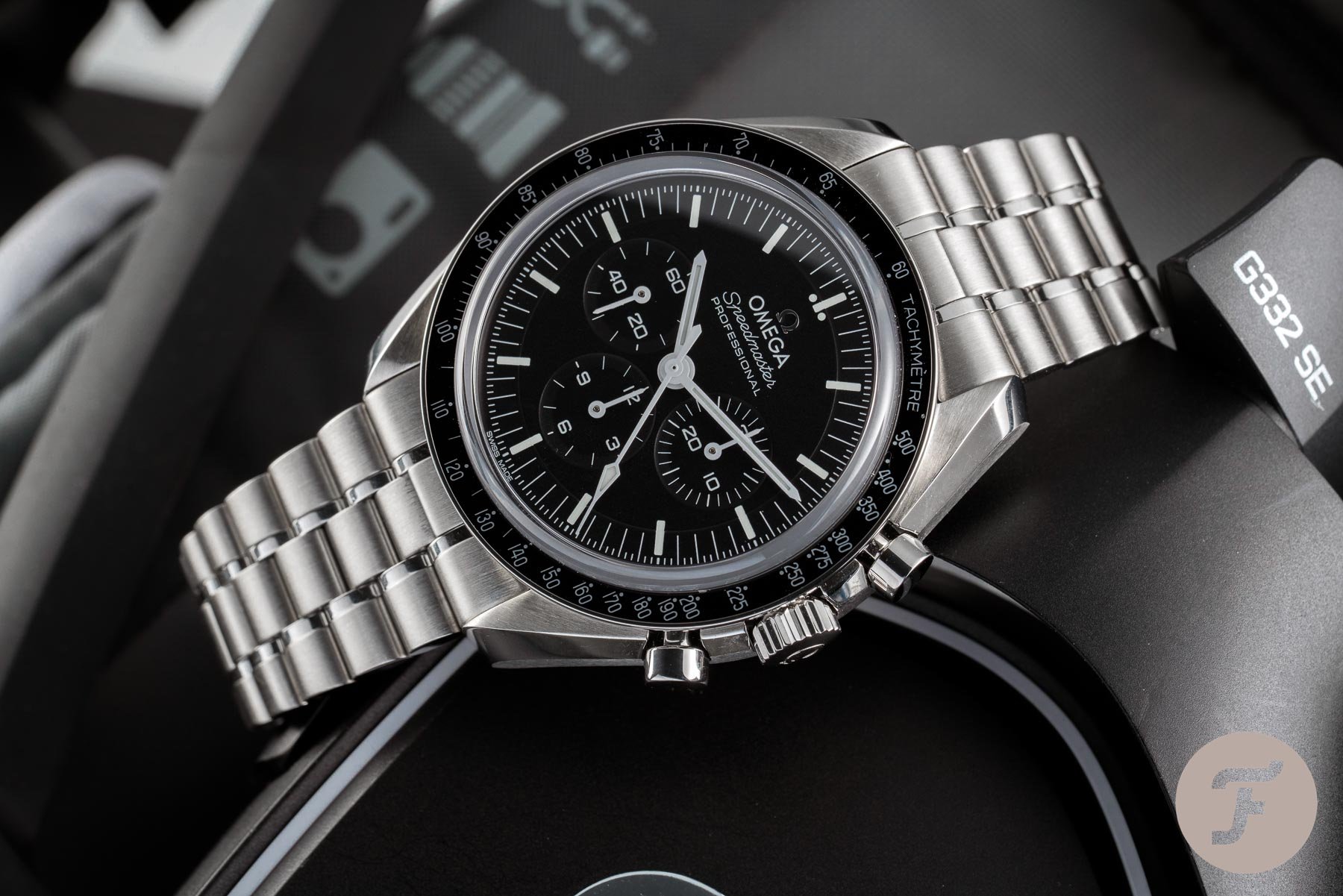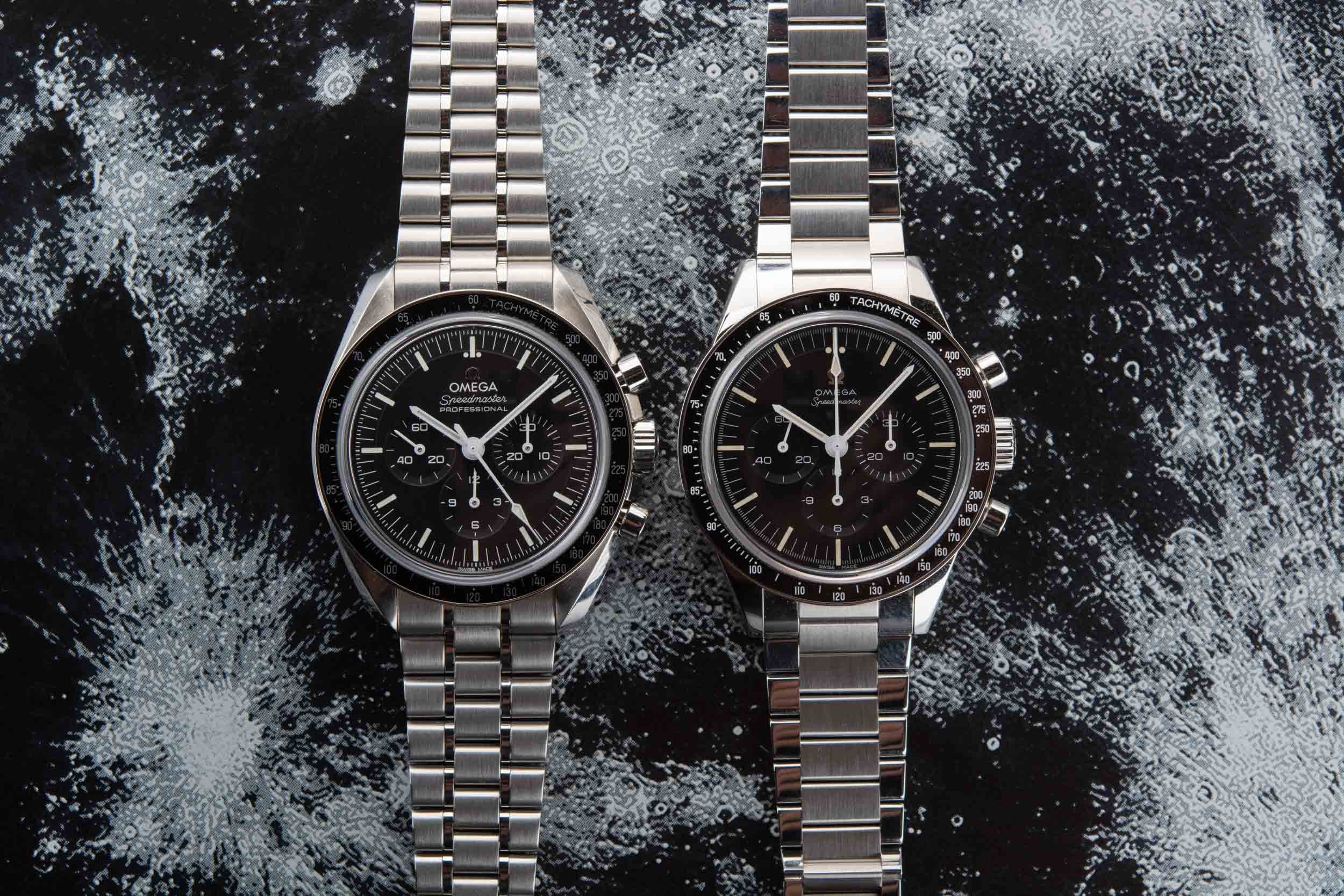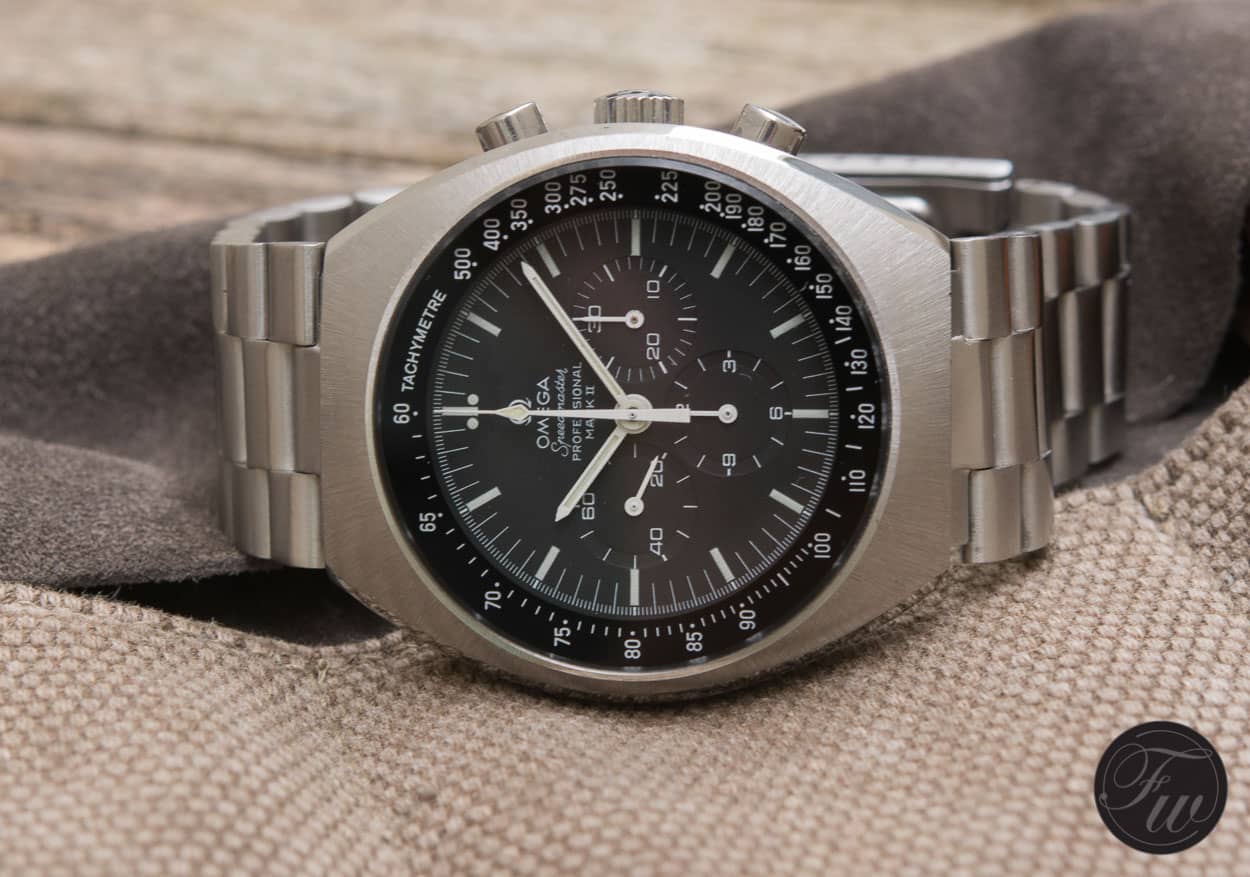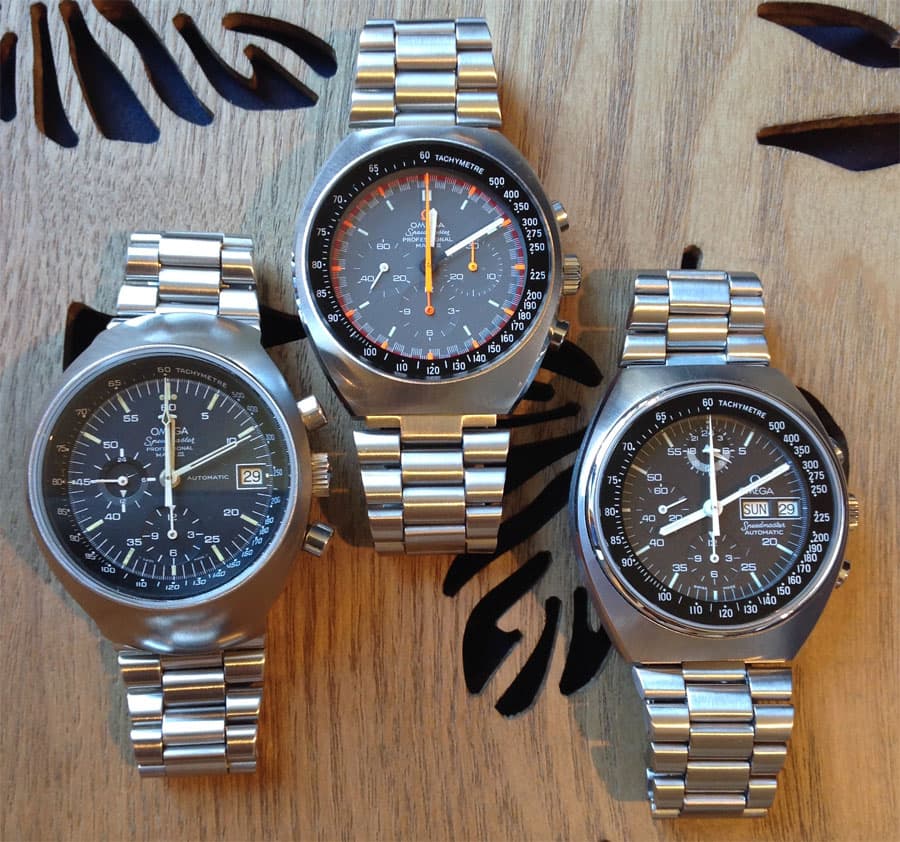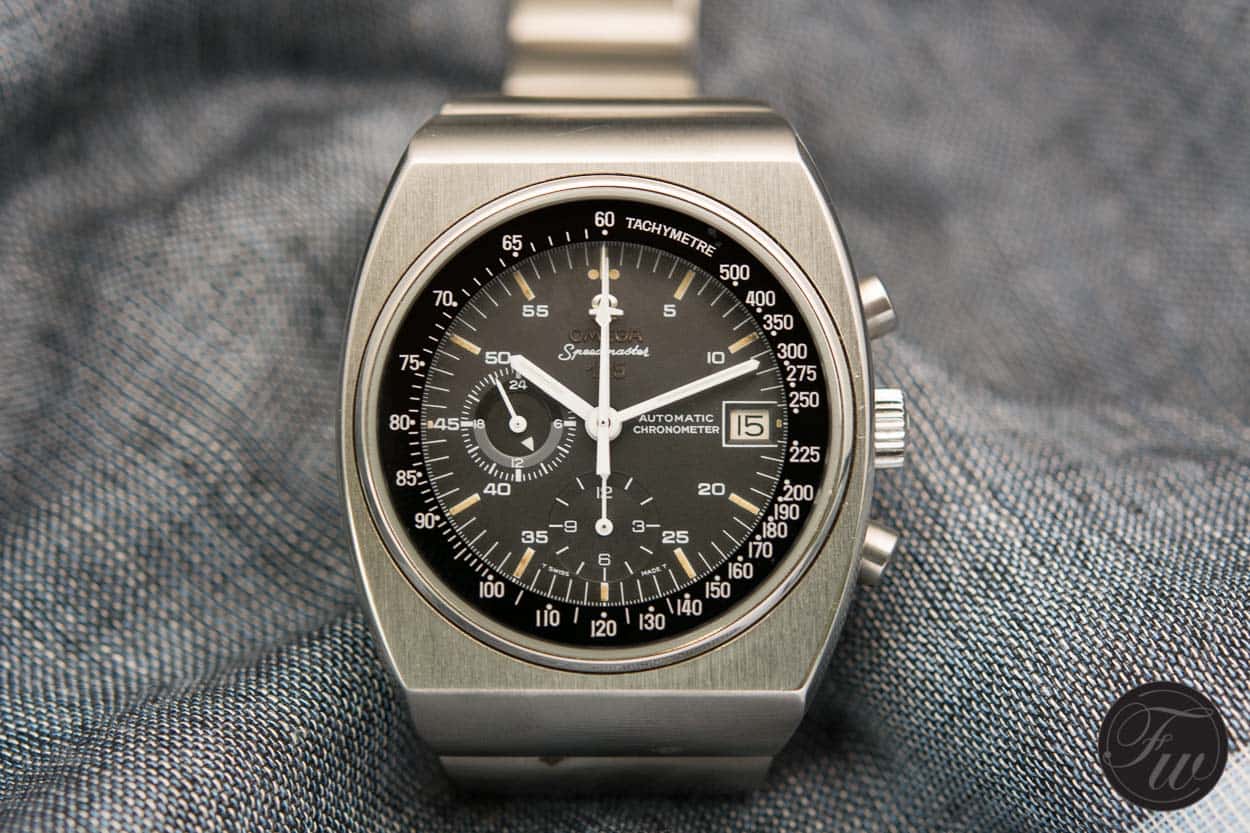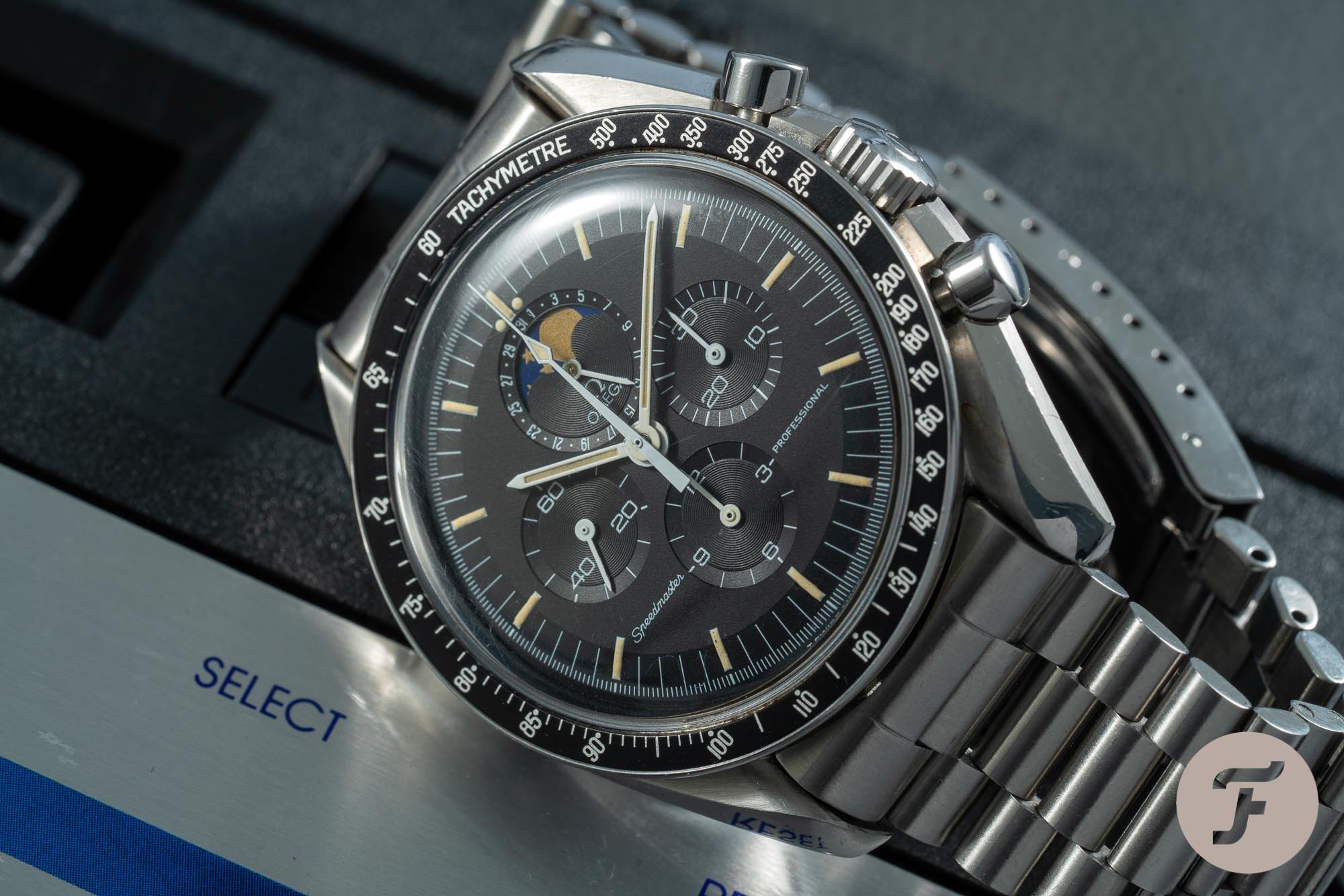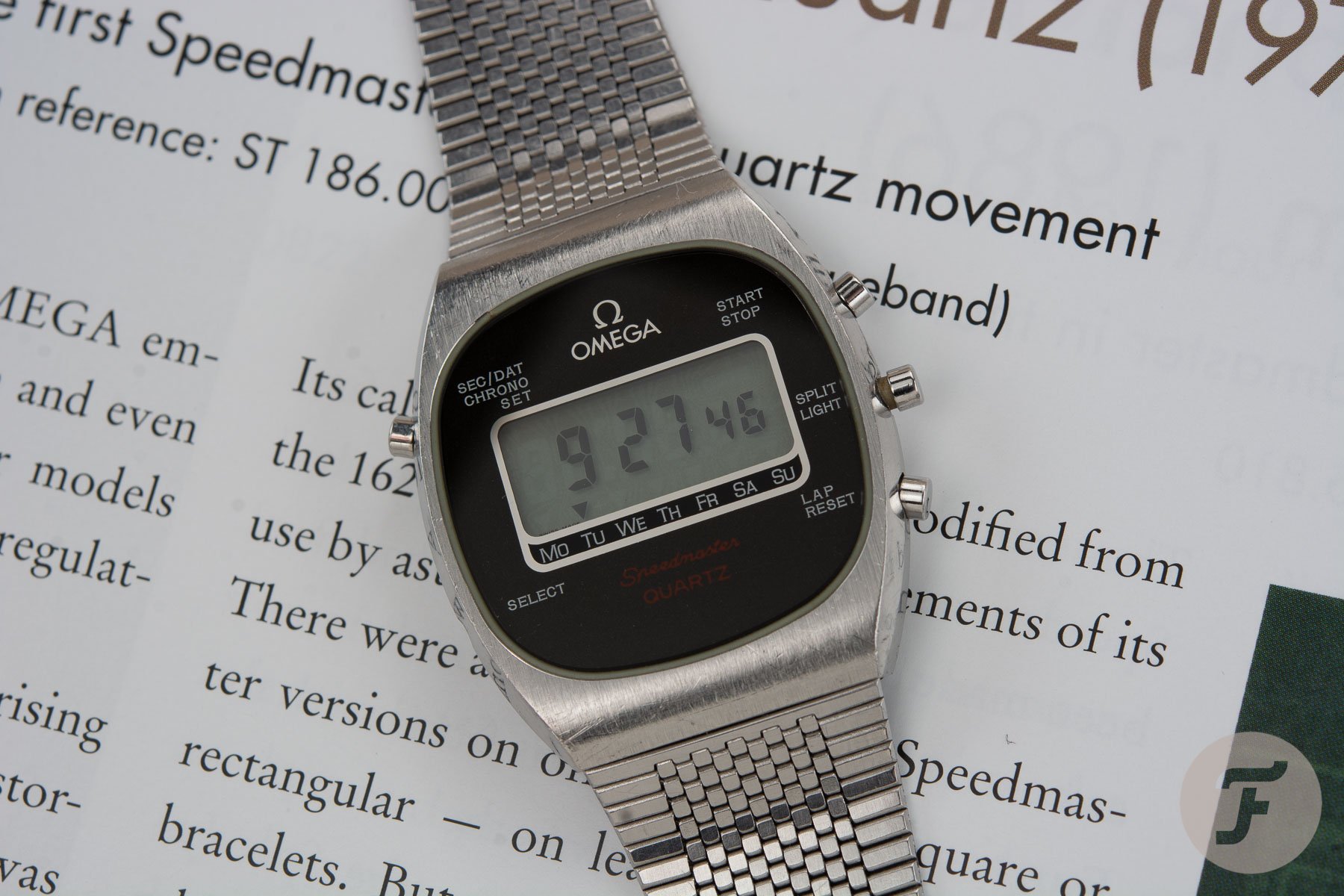Fratello’s Guide To Omega Speedmaster Watches
This is Fratello’s guide to Omega Speedmaster watches. Whether you are buying your first Omega Speedmaster or just looking to add another one to the collection, it doesn’t hurt to gather as much information as possible before you make that purchase. In this Speedmaster guide, we’ll give you an overview of the most important references of the Speedmaster (Professional) and some of the Mark-series and other variations. Although this article isn’t meant as a pricing guide, we will give some hints, of course. This article is most likely not giving you any new information if you’re already a Speedmaster collector. But for those who are not, it will provide some basic information on the Speedmaster series.
Introduction to the Speedmaster Guide
We first published this article nearly nine years ago, and we keep it up to date to ensure the latest versions of the Omega Speedmaster are covered as well. An introduction to the Omega Speedmaster isn’t necessary, we think. We all know about this iconic timepiece. So let’s focus on how to use this Speedmaster guide instead.
The longer, more focused articles on the site are a great resource.
Without going into great detail on each of the references mentioned in this article, we will link to articles in which we did. Over the past 11 years since we started Speedy Tuesday, we have reviewed and written about many different models and references. The longer, more focused articles on the site are a great resource, especially for newcomers to the hobby. You will find an overview of all the Speedmaster watches covered in separate articles here, per reference number.
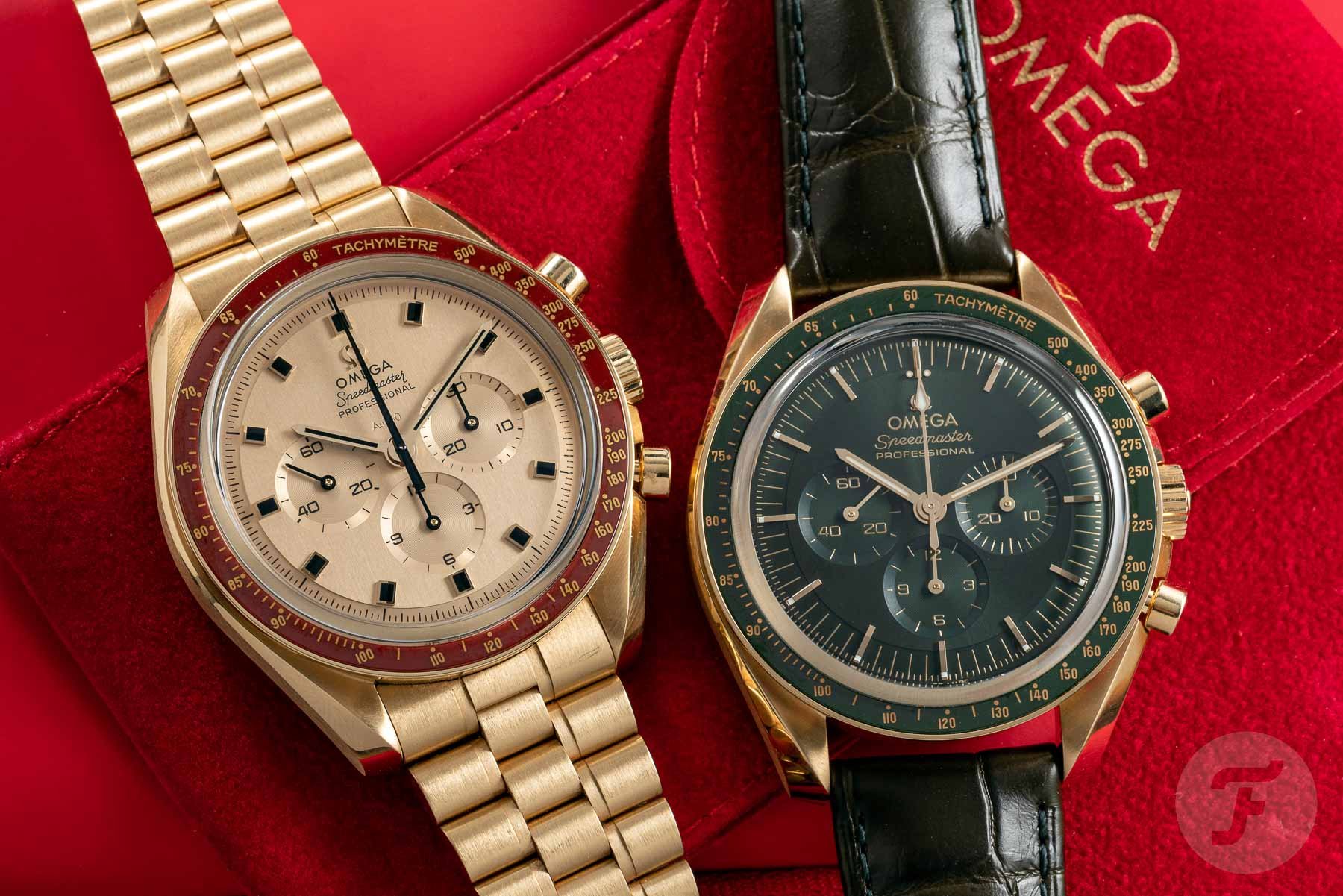
Apollo 11 50th Anniversary Moonshine Gold limited edition (left) and the green-dial version from 2022
In this series of articles, we will focus on the various steps to take when you are in the process of buying — or collecting — Speedmaster watches. We will give some hints regarding Speedmaster prices, but as this may vary according to the part of the world you live in (taxes, currencies), we won’t emphasize this too much. For now, what is much more important are the details you should look for when you’ve found a Speedmaster of your choice.
Omega Speedmaster models
One of the questions we often receive is if we can give some guidance on all the different models out there. If you are new to Speedmaster watches, it might seem like a bit of a horological wilderness. If you’re looking for the actual Moonwatch model (the reference that went to the Moon), read this article validated by Omega. Or, if you are looking for the current Omega Speedmaster Professional that is closest to the original Moonwatch, click here. Sometimes it is so confusing that people wonder if the Speedmaster Reduced is a Moonwatch too (it isn’t).
If you are looking for a particular reference or model, you can use the search function on this website. Chances are very high that you will find what you’re looking for.
We will make a distinction between the following models for this Speedmaster Guide:
- Speedmaster (Professional) “Moonwatch”
- Speedmaster (Professional) Mark Series
- Various other vintage Speedmaster models
For now, we will skip the modern collection of Speedmaster watches with the F. Piguet-based 33xx movements, the Speedmaster caliber 9300 (Dark Side of the Moon, etc.), Racing Caliber 9900 models, and so on for this Omega Speedmaster Guide.
If you’re interested in these newer models, there is a wealth of information available on Omega’s website. But what we want to dig into here, are some of the classics from the model’s history.
The Speedmaster (Professional) Moonwatch
Not all of these Speedmaster models in this section are considered a “Moonwatch.” Many of them were introduced way before NASA chose Omega to become the official timepiece for their astronauts. Despite this, we will still use this category for them in this Speedmaster guide. These early models are considered to be the forerunners of the Moonwatch. Their existence is vital to the history that was to come. And, to be frank, they are too beautiful to ignore.
Speedmaster CK2915
The very first Speedmaster that Omega introduced in 1957 had reference CK2915. Together with the Seamaster 300 (CK2913) and Railmaster (CK2914), this model was part of this professional trio featuring curved lugs, a black dial, and broad arrow hands. Initially, the Speedmaster was meant to be a sports chronograph, using the dashboard clocks of Italian sports cars of that time as an inspiration. The watch was advertised with racing cars, but the chronograph was useful for many other sports as well. The chronograph was also useful for those who needed to time events and tasks outside of sports. The first Speedmaster has a diameter of 38.6mm, a lug spacing of 19mm, and a lug-to-lug length of 48mm. In the first three generations of Speedmasters, the lug spacing and lug-to-lug length do not change.
CK2915 iterations
The CK2915 has multiple versions (you will find a -1, -2, or -3 added to the reference number) that could, more or less, be considered small updates. If you are looking for a CK2915, expect to pay a fortune (recent results have skyrocketed the price of the CK2915). More importantly, perhaps, try to find an original one that has not been tampered with. There is so much money involved in these very first models that it also attracts people whose intentions are not always honest (newly made cases, movements from other watches, refitted bezels from a later period, and so on). Be very cautious when you find one on offer.
The CK2915 houses the Omega caliber 321 with a column-wheel chronograph. This Lemania (based on the caliber 2310) movement went out of production in 1968 when Omega introduced the Speedmaster Professional 145.022. Then, in 2019, Omega announced the return of the caliber 321. It was first introduced in an all-platinum version of the Moonwatch, then in January 2020 in a steel “Ed White” case.
Speedmaster CK2998 and 105.002
This is often considered the second-best thing when it comes to vintage Speedmasters. This particular reference number already looks a bit like the “Moonwatch” with its black bezel and Alpha hands. Where the first Speedmaster had a bit of a military look, in my opinion, this watch is a more subtle sports chronograph. The black bezel also changed the diameter of the watch from 38.6mm to 39.7mm. The lug spacing remained 19mm and the lug-to-lug is 48mm.
CK2998 iterations
There is quite a bit of variation in the CK2998, and the different styles of hands are the most important identifier. One of the most sought-after CK2998 models is the one with the “lollipop” chronograph seconds hand.
The 105.002 needs to be mentioned as well. There is actually no real difference between the last variation CK2998(-62) and the 105.002 except for the reference number. Omega changed the reference number syntax, which meant getting rid of the CK identifier and four-digit numbers. The 105.002 was actually made for a very short period (1962) before its successor (105.003) was introduced. This makes the 105.002 perhaps even more collectible than some of the CK2998 models.
FAP models
Expect to pay approximately €25,000 for a Speedmaster CK2998 in good condition. If it comes with the original box and/or papers as well, this will affect the price. You might also be interested in the so-called FAP models that were delivered to the Peruvian Air Force. If a CK2998 is in near-mint condition, expect to pay much more than the €25,000 mentioned. Especially if it is one of the first iterations, prices can almost be three times as much. Just try to think of what’s important to you when collecting before you make a purchase.
Speedmaster 105.003
The 105.003 reference already looks a bit more like the Speedmaster Professional “Moonwatch” with its white baton hands. This Speedmaster is actually the most affordable pre-Professional model out there. Nevertheless, prices of this 105.003 reference have gone up in the last few years. Expect to pay at least €17,000 for one in good condition. The 105.003 often goes by the nickname “Ed White” because the eponymous astronaut used this watch (even two of them) during his spacewalk in 1965.
The first NASA-qualified watch
As you can read in another article here on Fratello (“How the Speedmaster became the Moonwatch”), the 105.003 was the watch that NASA used for space qualification. Although Omega shipped the successors of the 105.003 for use during the astronauts’ Extra-Vehicular Activities, NASA also used the 105.003. These watches were in NASA’s possession, as the organization received some for the qualification procedures, and the watches saw action during Apollo missions.
Omega introduced the Speedmaster 105.003 right after the “transitional” 105.002 in 1964. It was in production until 1969. In some old catalogs, you will find the 105.003 right next to the 105.012/145.012. In 2020, Omega released the Speedmaster Calibre 321, which was based on this third-generation Speedmaster. You will find it further down in this article.
Speedmaster Professional 105.012 and 145.012
The Speedmaster references 105.003, 105.012, and 145.012 are actually the references that the Apollo 11 astronauts used. The latter two also have an asymmetrical case due to the use of crown guards. Omega added these crown guards after NASA commented on the risk of knocking off the pushers due to rough use. The lyre lugs and crown guards increased the diameter of the new Speedmaster to 42mm. The lug spacing is 20mm, and the lug-to-lug length remained 48mm.
The 105.012 and 145.012 are considered to be the watches qualified by NASA in 1965. They also had “Professional” on the dials since 1964, but this has nothing to do with the qualification. It is verified that Buzz Aldrin wore a 105.012 when he set foot on the Moon while Michael Collins wore his 145.012 when waiting in the capsule for Aldrin and Armstrong to get back.
Minimal differences
As the legend goes, Armstrong didn’t wear his watch as the Bulova board clock broke down. The difference between the 105.012 and 145.012 is very minimal, although some purists might disagree. Omega started to use different pushers for the 145.012, enhancing the water resistance. There is more variation in the 105.012 references from 1964 till the end of the production in 1968, whereas the 145.012 only had a short production (1967–1968) with few changes during its lifespan. You will find the 145.012 with two different chronograph seconds hands, those with the teardrop-shaped short end (see below) and the one with the flat end (used until 2020).
The real Moonwatch models
The strange thing is, although it is common to accept that the 105.003, 105.012, and 145.012 are the true Moonwatch models, these references are the least expensive caliber-321-powered Speedmaster Professional watches you can buy. The 145.012 is a bit more common and was the last caliber 321 in production (until October 1968). You will be able to find a 145.012 starting around €10,000 in good condition.
The 105.012 is considered to be a bit more valuable. You will find them with cases made by suppliers HF and CB. The obvious characteristics to look for are the DON bezel, the tritium hands, the bracelets (105.012 and 145.012 used a wide variety of bracelets, reference 1039 being the most common), and the condition of the dial. You will find them from super clean (very white printing) to heavily discolored ones, like the example above.
It’s interesting to know that the current Speedmaster Professional Moonwatch models have a design that is based on the 105.012 references. Not only the case of the current Moonwatch but also the dial, bezel, and hands find their origin in the Speedmaster Professional reference 105.012.
Click here for our Speedmaster 145.012 buyer’s guide.
Speedmaster Professional 145.022
In 1968, Omega decided to update the Speedmaster a bit. The dial wouldn’t feature the applied Omega logo anymore (although you will find the occasional “transitional” model where Omega probably grabbed parts that were still on the shelves in Biel), and the movement has been changed to the Lemania-based Omega caliber 861. This movement does not have a column-wheel mechanism but a cam lever. The 145.022 was in the collection until around 1983.
In those early years, the dial featured a “step” like the previous dials from the 321-powered models. These are a bit more sought after than the late 1970s and 1980s models. Also, later 145.022 models should be easy to find with their box and paperwork. Omega used the stepped dial in the 145.022-68, 145.022-69, and 145.022-71 references. The 145.022-71 was in production till the end of 1974, and then the 145.022-74 replaced it.
The serial numbers
The –xx indicators do not specifically indicate the exact year of production. You can only determine that based on the serial number engraved on the movement. For example, the 145.022-69 was in production from 1969 till the third quarter of 1971. You should be able to find a nice 145.022 from the 1970s for around €5,000 to €6,000 in good condition, perhaps even less if you find a great deal. We published a separate 145.022 buyer’s guide for you to read (click here).
There are also a few different case backs for the 145.022, from the similar 145.012 case back to the current case back with the “First Watch Worn on the Moon” engraving. The most desirable ones are those with a horizontal inscription, which also come in two flavors. The most sought-after version has “Apollo XI 1969” engraved below the “First Watch Worn on the Moon” inscription.
The 145.022 is also the reference number for a gold model with a burgundy bezel. Omega made this commemorative edition for the President of the USA, other members of the White House, and Apollo astronauts. We’ve written several Speedy Tuesday articles on these gold models, but we also have an overview for you with all gold Speedmaster Moonwatch models. Prices on these gold models start around €45,000, depending on the condition.
Speedmaster Professional 145.0022 and 3590.50
In 1983, Omega started using the 145.0022 code for Speedmaster Professional models (although 145.0022 was a reference before as well but was never engraved on the case back). This continued until the late 1980s when Omega began using the PIC system for its reference numbers. In 1989, the Speedmaster Professional reference became the 3590.50.
In the late 1980s, other things such as the bracelet also changed. The 3592.50 was the reference for the Moonwatch with the caliber 863 and sapphire case back. It wasn’t the first Speedmaster with a sapphire case back though. That had already debuted in 1980 with the gold Speedmaster Professional 345.0802. The steel version with a sapphire case back was reference 345.0808. We did a specific Speedmaster Professional 145.022 buyer’s guide here.
Speedmaster 3570.50 and 311.30.42.30.01.005
In 1997, the movement received an upgrade to Omega’s caliber 1861 (already very similar to the last iteration of the 861 movement) and the dial and hands received a Luminova treatment instead of tritium. These late 1980s and early 1990s Speedmaster Professional models with tritium often age very nicely, gaining this yellow-ish patina on the markers and hands. You will also find it easier to source one of these watches with its box and papers in comparison to the models from the 1970s or earlier. A watch from the early 1990s might be a great starting point if you’re new to Speedmasters but want something “vintage”.
The 1997 update happened with the reference 3570.50 (although the very first of these references still had tritium markers and hands). Then, in 2014, the Speedmaster received reference number 311.30.42.30.01.005. This watch uses the caliber 1861 and has an updated bracelet design (with screwed links) and a huge presentation box.
It’s also these references that have been the base for many variations/limited editions by Omega, like our Speedy Tuesday editions in 2017 and 2018. You can find an overview of them here.
The 311.30.42.30.01.005 was discontinued in January 2021 and replaced with the Speedmaster Professional Master Chronometer. We’ve noticed a slight increase in pre-owned prices for the discontinued modern Speedmaster Professional Moonwatch models, but not by much. There is one exception, however. BNIB and NOS examples of the discontinued Speedmaster Professional are already fetching higher prices than the retail price.
Today’s Omega Speedmaster Professional Moonwatch(es)
On January 5th, the first Speedy Tuesday of 2021, Omega finally introduced the long-expected successor of the caliber 1861 Moonwatch. At the end of 2019, Omega had already announced that the Speedmaster Professional would receive an update with the caliber 3861.
Back then, the movement was only used for the Apollo 11 limited editions and, later on, in the Silver Snoopy Award 50th Anniversary as well. We explain all about the current Speedmaster Master Chronometer in this article and the video below.
In short, Omega used the Speedmaster Professional 105.012 as a starting point for the new design. It features a stepped dial and a teardrop counterweight on the chronograph seconds hand, as well as an applied logo on the sapphire version. To make a distinction, the Moonwatch with the Hesalite crystal has a printed Omega logo. Another distinction between the sapphire and Hesalite versions is in the bracelet. The bracelet for the latter is all brushed, while the sapphire edition has polished intermediate links. The diameter of the new Moonwatch (reference 310.30.42.50.01.001) remains 42mm, but the case shape changed slightly, making it similar to the 105.012. It also has a small notch between the lugs for a better fit with the bracelet’s end links. No more rattling bracelets. The lug-to-lug length is still 48mm and the lug spacing is 20mm.
The other model that is in the regular collection and is considered to be a “Moonwatch” is the Speedmaster Calibre 321. Based on reference 105.003 from the 1960s, the Speedmaster Calibre 321 has a straight-lug 39.7mm case but features a sapphire crystal and a ceramic bezel. As its name suggests, the movement inside is the classic caliber 321 chronograph with the column-wheel mechanism. Side by side in the picture below are the current Speedmaster Professional Moonwatch and Speedmaster Calibre 321. The price of the current Speedmaster Professional Moonwatch starts at €7,500 (with bracelet). The Speedmaster Calibre 321 retails for €16,700.
You can read all about the new Speedmaster Calibre 321 in this article or watch it in this video.
Speedmaster (Professional) Mark Series
Another frequent topic for our Speedy Tuesday articles is the Mark series. If we do not consider the Speedmaster Professional (145.012/145.022) as a Mark I, there are four official Speedmaster Mark Series. The first was the Mark II (introduced in 1969), followed by the Mark III, Mark IV, and Mark V.
Even though some of them were also considered Speedmaster Professionals, none of them were flight-qualified for manned space missions by NASA. Only the Mark II features the same hand-wound movement as the Speedmaster Pro 145.022. The others have different automatic (Lemania-based) 1040 or 1045 chronograph calibers. The Mark V was introduced in 1984, and it was the last one of this series. Below, you can see examples of a Mark III, Mark II Racing, and Mark 4.5 (see the next section).
These Mark-series models are not as popular among the majority as the Speedmaster Professional. Prices start at around €2,500. Some models tend to fetch more, though, also depending on condition and whether they are complete with their boxes and papers. We have covered the Mark series often here on Fratello, and perhaps we will find the need to create a Speedmaster Guide of its own for these models.
Various other vintage Speedmaster models
There is a small correction to make — although it was never official — to the text above. There is a watch that is considered the Speedmaster Mark 4.5. This watch is similar to the Mark IV, but it features a Lemania 5100-based movement (Omega caliber 1045). Another related watch is the Speedmaster Teutonic, a watch very similar to the Mark V but also with the Omega caliber 861. The Teutonic was only meant for the German market in the mid-1980s. Prices are around the same as the Mark series.
Another Speedmaster that deserves a mention here is the Speedmaster 125. It marked the 125th anniversary of the Omega company in 1973 and has this big, clunky case with the Omega caliber 1041 inside. This is basically the same movement as the caliber 1040, but with chronometer certification. In fact, it was the first automatic chronograph movement with a chronometer certificate ever. It was always assumed that there were only 2,000 units of this watch made, but recent research seems to contradict this number. It is also quite easy to find one, so the actual production number must have been much larger. Expect to pay around €3,000 for an example in good condition.
Collectible Speedmaster models worth mentioning
Other collectible models worth mentioning in this Speedmaster Guide are the early Speedmaster Professional Moonphase watches (1985). Only 1,300 pieces of this model were made, and they are highly desirable. Later on (in the 2000s), Omega rereleased this particular model, and it remained in the collection for years thereafter. Another highly-sought-after Omega Speedmaster is the one with the “Professional” case and with Lemania 5100-based Omega caliber 1045.
This Speedmaster Automatic reference 376.0822 has also been nicknamed “the Holy Grail” by the late Chuck Maddox. Only 2,000 pieces have been made in 1987. Be very aware of the watches that are being offered with service parts. This should be reflected in the price. You can find a good bit of research and price indications here.
The Omega Speedmaster Professional Quartz LCD models are also interesting for those who are into buying Speedmaster watches. Though perhaps not wearable everyday pieces, they are certainly interesting to own.
Click here for the Omega Speedmaster Buyer’s Guide Part 2.
*This article was first published on August 5th, 2014 and updated with new information and images on February 28th, 2023.

